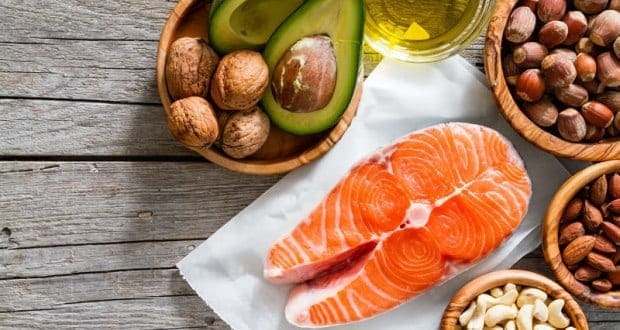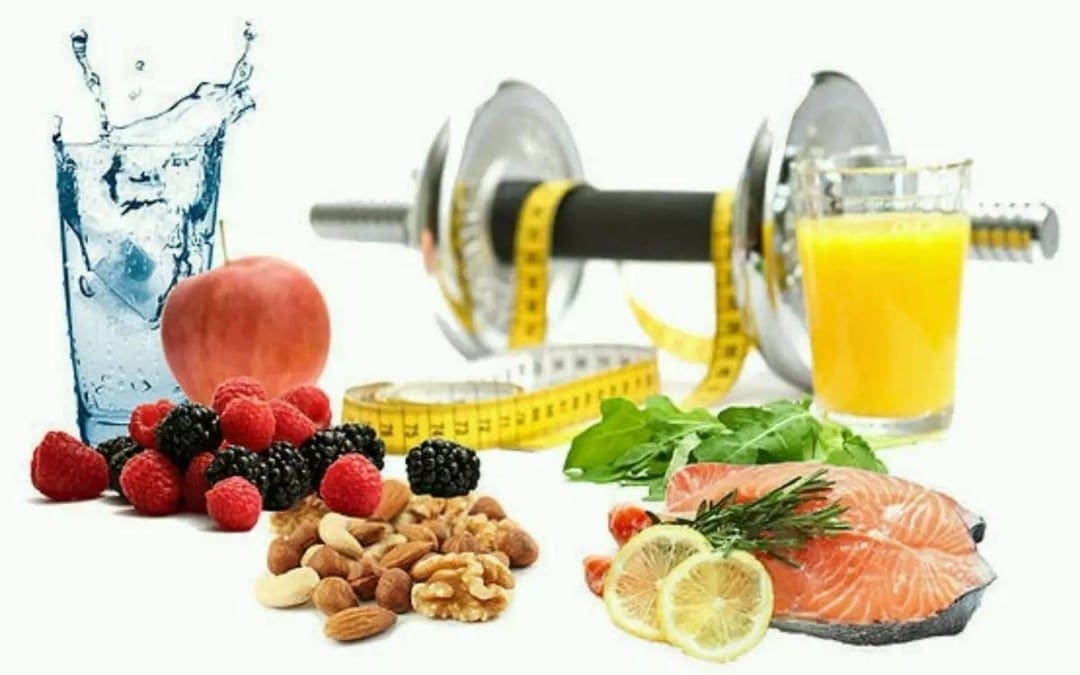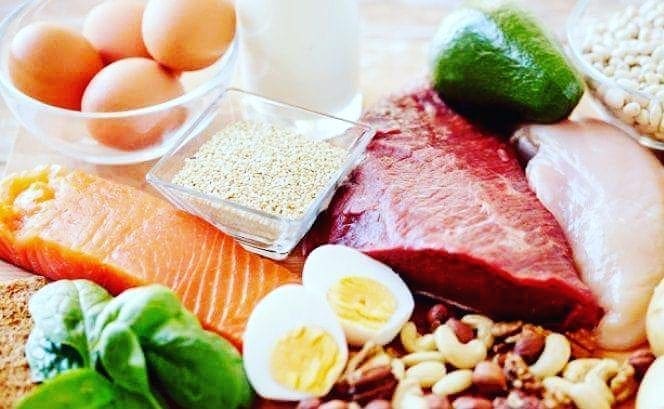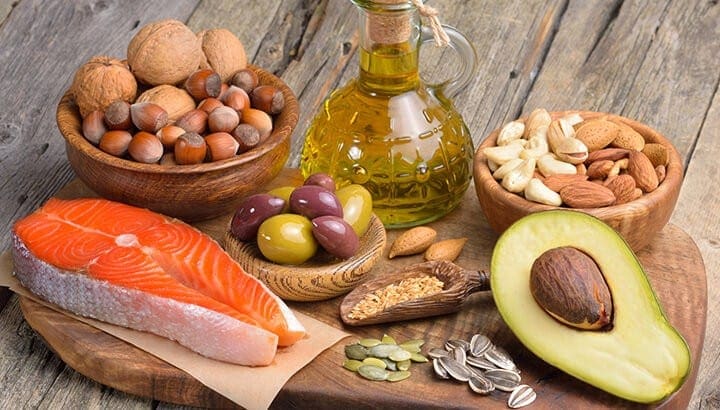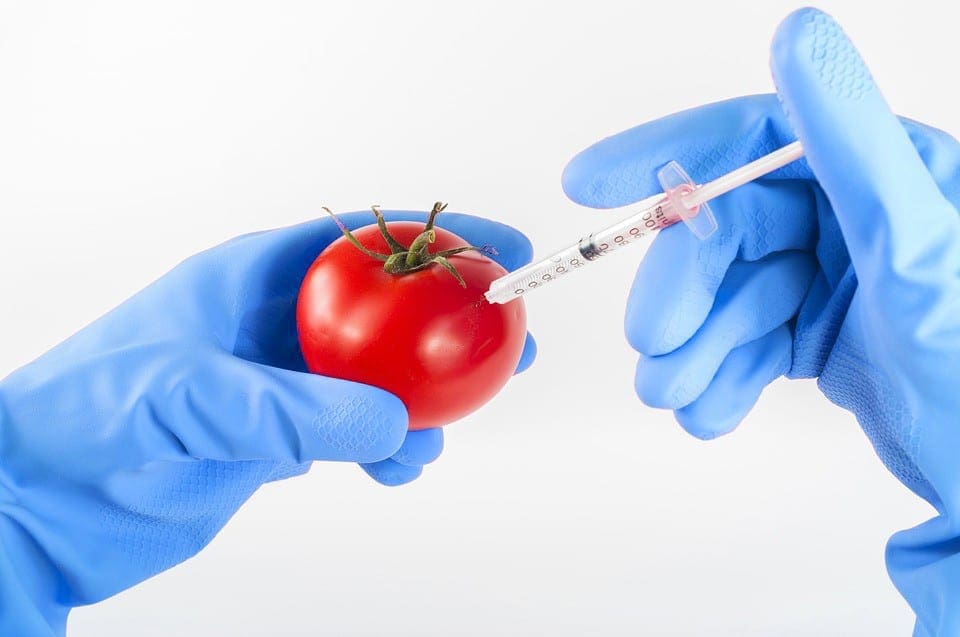
The Health Risks Of Genetically Modified (GM) Foods
GMOs: We all know stories of tobacco, asbestos, and DDT. Originally declared safe, they caused widespread death and disease. Although their impact was vast, most of the population was spared. The same cannot be said for sweeping changes in the food supply. Everyone eats; everyone is affected. The increase in several diseases in North America may be due to the profound changes in our diet. The most radical change occurred a little over a decade ago when genetically modified (GM) crops were introduced. Their influence on health has been largely ignored, but recent studies show serious problems. Genetically modified organisms (GMOs) have been linked to thousands of toxic or allergic-type reactions, thousands of sick, sterile, and dead livestock, and damage to virtually every organ and system studied in lab animals.1 Nearly every independent animal feeding safety study shows adverse or unexplained effects.
GM foods were made possible by a technology developed in the 1970s whereby genes from one species are forced into the DNA of other species. Genes produce proteins, which in turn can generate characteristics or traits. The promised traits associated with GMOs have been sky high�vegetables growing in the desert, vitamin fortified grains, and highly productive crops feeding the starving millions. None of these are available. In fact, the only two traits that are found in nearly all commericialized GM plants are herbicide tolerance and/or pesticide production.
Herbicide tolerant soy, corn, cotton, and canola plants are engineered with bacterial genes that allow them to survive otherwise deadly doses of herbicides. This gives farmers more flexibility in weeding and gives the GM seed company lots more profit. When farmers buy GM seeds, they sign a contract to buy only that seed producer�s brand of herbicide. Herbicide tolerant crops comprise about 80% of all GM plants. The other 20% are corn and cotton varieties that produce a pesticide in every cell. This is accomplished due to a gene from a soil bacterium called Bacillus thuringiensis or Bt, which produces a natural insect-killing poison called Bt- toxin. In addition to these two traits, there are also disease resistant GM Hawaiian papaya, zucchini and crook neck squash, which comprise well under 1% of GMO acreage.
GMOs: The FDA’s “Non-Regulation” Of GM Foods
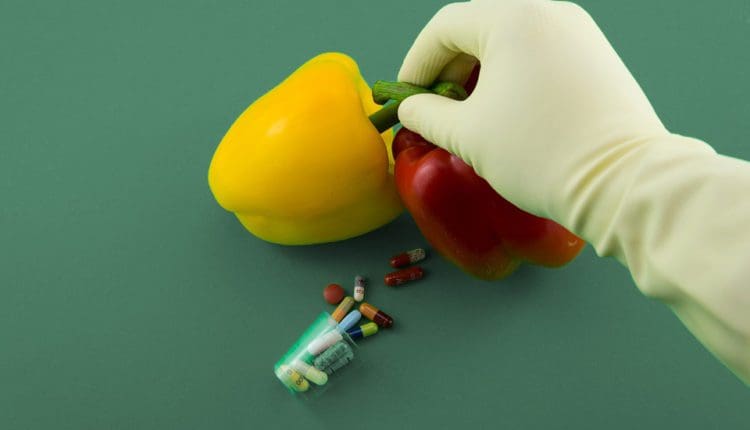 Rhetoric from the United States government since the early 1990s proclaims that GM foods are no different from their natural counterparts that have existed for centuries. The Food and Drug Administration (FDA) has labeled them �Generally Recognized as Safe,� or GRAS. This status allows a product to be commercialized without any additional testing. According to US law, to be considered GRAS the substance must be the subject of a substantial amount of peer-reviewed published studies (or equivalent) and there must be overwhelming consensus among the scientific community that the product is safe. GM foods had neither. Nonetheless, in a precedent-setting move in 1992 that some experts contend was illegal, the FDA declared that GM crops are GRAS as long as their producers say they are. Thus, the FDA does not require any safety evaluations or labeling of GMOs. A company can even introduce a GM food to the market without telling the agency.
Rhetoric from the United States government since the early 1990s proclaims that GM foods are no different from their natural counterparts that have existed for centuries. The Food and Drug Administration (FDA) has labeled them �Generally Recognized as Safe,� or GRAS. This status allows a product to be commercialized without any additional testing. According to US law, to be considered GRAS the substance must be the subject of a substantial amount of peer-reviewed published studies (or equivalent) and there must be overwhelming consensus among the scientific community that the product is safe. GM foods had neither. Nonetheless, in a precedent-setting move in 1992 that some experts contend was illegal, the FDA declared that GM crops are GRAS as long as their producers say they are. Thus, the FDA does not require any safety evaluations or labeling of GMOs. A company can even introduce a GM food to the market without telling the agency.
Such a lenient approach was largely the result of the influence of large agricultural corporations According to Henry Miller, who had a leading role in biotechnology issues at the FDA from 1979 to 1994, �In this area, the US government agencies have done exactly what big agribusiness has asked them to do and told them to do.�2 The Ag biotech company with the greatest influence was clearly Monsanto. According to the New York Times, �What Monsanto wished for from Washington, Monsanto and, by extension, the biotechnology industry got. . . . When the company abruptly decided that it needed to throw off the regulations and speed its foods to market, the White House quickly ushered through an unusually generous policy of self-policing.�3
This policy was heralded by Vice President Dan Quayle on May 26, 1992. He chaired the Council on Competitiveness, which had identified GM crops as an industry that could boost US exports. To take advantage, Quayle announced �reforms� to �speed up and simplify the process of bringing� GM products to market without �being hampered by unnecessary regulation.�4 Three days later, the FDA policy on non-regulation was unveiled.
The person who oversaw its development was the FDA�s Deputy Commissioner for Policy, Michael Taylor, whose position had been created especially for him in 1991. Prior to that, Taylor was an outside attorney for both Monsanto and the Food Biotechnology Council. After working at the FDA, he became Monsanto�s vice president. The Obama administration has put Talyor back into the FDA as the US Food Safety Czar.
The FDA Covers Up Health Risks
 Taylor�s GMO policy needed to create the impression that unintended effects from GM crops were not an issue. Otherwise their GRAS status would be undermined and they would need the extensive testing and labels that are normally required for food additives. But internal memos made public from a lawsuit showed that the overwhelming consensus among the agency scientists was that GM crops can have unpredictable, hard-to-detect side effects. Various departments and experts spelled these out in detail, listing allergies, toxins, nutritional effects, and new diseases as potential dangers. They urged superiors to require long-term safety studies.5 In spite of the warnings, according to public interest attorney Steven Druker who studied the FDA�s internal files, �References to the unintended negative effects of bioengineering were progressively deleted from drafts of the policy statement (over the protests of agency scientists).�6
Taylor�s GMO policy needed to create the impression that unintended effects from GM crops were not an issue. Otherwise their GRAS status would be undermined and they would need the extensive testing and labels that are normally required for food additives. But internal memos made public from a lawsuit showed that the overwhelming consensus among the agency scientists was that GM crops can have unpredictable, hard-to-detect side effects. Various departments and experts spelled these out in detail, listing allergies, toxins, nutritional effects, and new diseases as potential dangers. They urged superiors to require long-term safety studies.5 In spite of the warnings, according to public interest attorney Steven Druker who studied the FDA�s internal files, �References to the unintended negative effects of bioengineering were progressively deleted from drafts of the policy statement (over the protests of agency scientists).�6
FDA microbiologist Louis Pribyl, PhD, wrote about the policy, �What has happened to the scientific elements of this document? Without a sound scientific base to rest on, this becomes a broad, general, �What do I have to do to avoid trouble�-type document. . . . It will look like and probably be just a political document. . . . It reads very pro-industry, especially in the area of unintended effects.�7
The scientists� concerns were not only ignored, their very existence was denied. The official FDA policy stated, �The agency is not aware of any information showing that foods derived by these new methods differ from other foods in any meaningful or uniform way.�8 In sharp contrast, an internal FDA report stated, �The processes of genetic engineering and traditional breeding are different and according to the technical experts in the agency, they lead to different risks.�9 The FDA�s deceptive notion of no difference was coined �substantial equivalence� and formed the basis of the US government position on GMOs.
Many scientists and organizations have criticized the US position. The National Academy of Sciences and even the pro-GM Royal Society of London10 describe the US system as inadequate and flawed. The editor of the prestigious journal Lancet said, �It is astounding that the US Food and Drug Administration has not changed their stance on genetically modified food adopted in 1992. . . . The policy is that genetically modified crops will receive the same consideration for potential health risks as any other new crop plant. This stance is taken despite good reasons to believe that specific risks may exist. . . . Governments should never have allowed these products into the food chain without insisting on rigorous testing for effects on health.�11 The Royal Society of Canada described substantial equivalence as �scientifically unjustifiable and inconsistent with precautionary regulation of the technology.� 12
GMOs Are Inherently Unsafe
 There are several reasons why GM plants present unique dangers. The first is that the process of genetic engineering itself creates unpredicted alterations, irrespective of which gene is transferred. The gene insertion process, for example, is accomplished by either shooting genes from a �gene gun� into a plate of cells, or using bacteria to infect the cell with foreign DNA. Both create mutations in and around the insertion site and elsewhere.13 The �transformed� cell is then cloned into a plant through a process called tissue culture, which results in additional hundreds or thousands of mutations throughout the plants� genome. In the end, the GM plant�s DNA can be a staggering 2-4% different from its natural parent.14 Native genes can be mutated, deleted, or permanently turned on or off. In addition, the insertion process causes holistic and not-well-understood changes among large numbers of native genes. One study revealed that up to 5% of the natural genes altered their levels of protein expression as a result of a single insertion.
There are several reasons why GM plants present unique dangers. The first is that the process of genetic engineering itself creates unpredicted alterations, irrespective of which gene is transferred. The gene insertion process, for example, is accomplished by either shooting genes from a �gene gun� into a plate of cells, or using bacteria to infect the cell with foreign DNA. Both create mutations in and around the insertion site and elsewhere.13 The �transformed� cell is then cloned into a plant through a process called tissue culture, which results in additional hundreds or thousands of mutations throughout the plants� genome. In the end, the GM plant�s DNA can be a staggering 2-4% different from its natural parent.14 Native genes can be mutated, deleted, or permanently turned on or off. In addition, the insertion process causes holistic and not-well-understood changes among large numbers of native genes. One study revealed that up to 5% of the natural genes altered their levels of protein expression as a result of a single insertion.
The Royal Society of Canada acknowledged that �the default prediction� for GM crops would include �a range of collateral changes in expression of other genes, changes in the pattern of proteins produced and/or changes in metabolic activities.�15 Although the FDA scientists evaluating GMOs in 1992 were unaware of the extent to which GM DNA is damaged or changed, they too described the potential consequences. They reported, �The possibility of unexpected, accidental changes in genetically engineered plants� might produce �unexpected high concentrations of plant toxicants.�16 GM crops, they said, might have �increased levels of known naturally occurring toxins,� and the �appearance of new, not previously identified� toxins.17 The same mechanism can also produce allergens, carcinogens, or substances that inhibit assimilation of nutrients.
Most of these problems would pass unnoticed through safety assessments on GM foods, which are largely designed on the false premise that genes are like Legos that cleanly snap into place. But even if we disregard unexpected changes in the DNA for the moment, a proper functioning inserted gene still carries significant risk. Its newly created GM protein, such as the Bt-toxin, may be dangerous for human health (see below). Moreover, even if that protein is safe in its natural organism, once it is transferred into a new species it may be processed differently. A harmless protein may be transformed into a dangerous or deadly version. This happened with at least one GM food crop under development, GM peas, which were destroyed before being commercialized.
FDA scientists were also quite concerned about the possibility of inserted genes spontaneously transferring into the DNA of bacteria inside our digestive tract. They were particularly alarmed at the possibility of antibiotic resistant marker (ARM) genes transferring. ARM genes are employed during gene insertion to help scientists identify which cells successfully integrated the foreign gene. These ARM genes, however, remain in the cell and are cloned into the DNA of all the GM plants produced from that cell. One FDA report wrote in all capital letters that ARM genes would be �A SERIOUS HEALTH HAZARD,� due to the possibility of that they might transfer to bacteria and create super diseases, untreatable with antibiotics.
Although the biotech industry confidently asserted that gene transfer from GM foods was not possible, the only human feeding study on GM foods later proved that it does take place. The genetic material in soybeans that make them herbicide tolerant transferred into the DNA of human gut bacteria and continued to function18. That means that long after we stop eating a GM crop, its foreign GM proteins may be produced inside our intestines. It is also possible that the foreign genes might end up inside our own DNA, within the cells of our own organs and tissues.
Another worry expressed by FDA scientists was that GM plants might gather �toxic substances from the environment� such as �pesticides or heavy metals,�19 or that toxic substances in GM animal feed might bioaccumulate into milk and meat products. While no studies have looked at the bioaccumulation issue, herbicide tolerant crops certainly have higher levels of herbicide residues. In fact, many countries had to increase their legally allowable levels�by up to 50 times�in order to accommodate the introduction of GM crops.
The overuse of the herbicides due to GM crops has resulted in the development of herbicide resistant weeds. USDA statistics show�that herbicide use is rapidly accelerating. Its use was up by 527 million pounds in the first 16 years of GM crops (1996-2011).�Glyphosate use per acre on Roundup Ready soybeans was up by 227% while use on non-GMO soy acreage decreased by 20% over�the same time period. The rate of application is accelerating due in large part to the emergence of herbicide tolerant weeds, now�found on millions of acres. According to a study by Charles Benbrook, the incremental increase per year was 1.5 million pounds in�1999, 18 million in 2003, 79 million in 2009, and about 90 million in 2011. And as Roundup becomes less effective, farmers are�now using more toxic herbicides, such as 2-4D.
The pesticide-producing Bt crops do reduce the amount of sprayed on insecticides, but the total amount produced by the crops is far�greater than the amount of displaced spray. For example, Bt corn that kills the corn rootworm produces one to two pounds of Bt�toxin per acre, but reduces sprayed insecticides by only about 0.19 pounds. SmartStax corn with eight genes produces 3.7 pounds of�Bt toxin per acre, but displaces only 0.3 pounds of sprayed insecticides. 20
All of the above risks associated with GM foods are magnified for high-risk groups, such as pregnant women, children, the sick, and the elderly. The following section highlights some of the problems that have been identified.
GM Diet Shows Toxic Reactions In The Digestive Tract
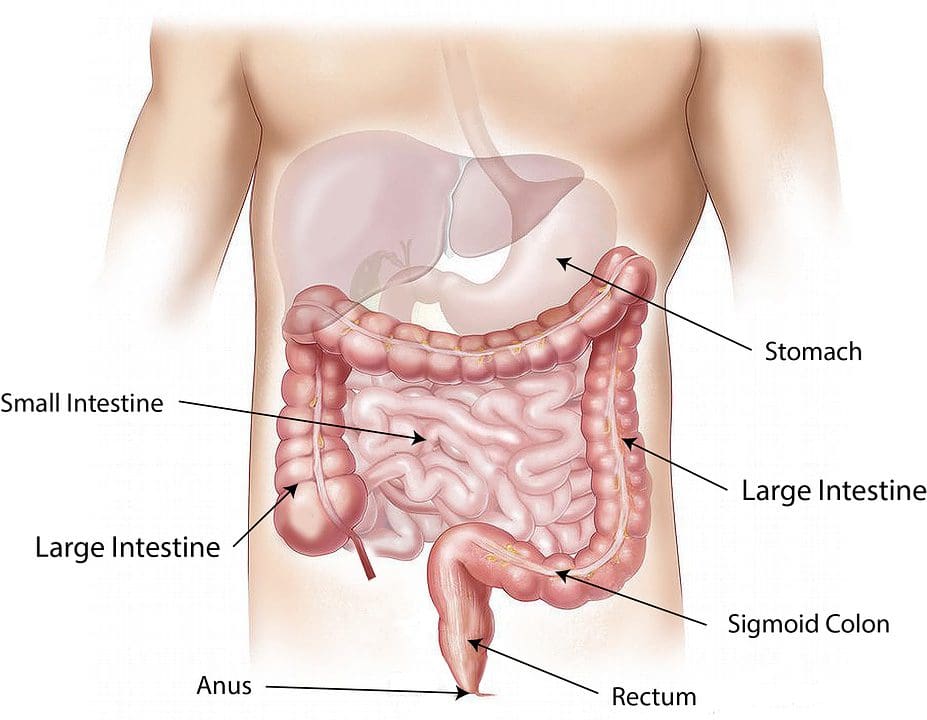 The very first crop submitted to the FDA�s voluntary consultation process, the FlavrSavr tomato, showed evidence of toxins. Out of 20 female rats fed the GM tomato, 7 developed stomach lesions.21 The director of FDA�s Office of Special Research Skills wrote that the tomatoes did not demonstrate a �reasonable certainty of no harm,�22 which is their normal standard of safety. The Additives Evaluation Branch agreed that �unresolved questions still remain.�23 The political appointees, however, did not require that the tomato be withdrawn.1
The very first crop submitted to the FDA�s voluntary consultation process, the FlavrSavr tomato, showed evidence of toxins. Out of 20 female rats fed the GM tomato, 7 developed stomach lesions.21 The director of FDA�s Office of Special Research Skills wrote that the tomatoes did not demonstrate a �reasonable certainty of no harm,�22 which is their normal standard of safety. The Additives Evaluation Branch agreed that �unresolved questions still remain.�23 The political appointees, however, did not require that the tomato be withdrawn.1
According to Arpad Pusztai, PhD, one of the world�s leading experts in GM food safety assessments, the type of stomach lesions linked to the tomatoes �could lead to life-endangering hemorrhage, particularly in the elderly who use aspirin to prevent [blood clots].�24 Dr. Pusztai believes that the digestive tract, which is the first and largest point of contact with foods, can reveal various reactions to toxins and should be the first target of GM food risk assessment. He was alarmed, however, to discover that studies on the FlavrSavr never looked passed the stomach to the intestines. Other studies that did look found problems.
Mice fed potatoes engineered to produce the Bt-toxin developed abnormal and damaged cells, as well as proliferative cell growth in the lower part of their small intestines (ileum).25 Rats fed potatoes engineered to produce a different type of insecticide (GNA lectin from the snowdrop plant) also showed proliferative cell growth in both the stomach and intestinal walls (see photos).26 Although the guts of rats fed GM peas were not examined for cell growth, the intestines were mysteriously heavier; possibly as a result of such growth.27 Cell proliferation can be a precursor to cancer and is of special concern.
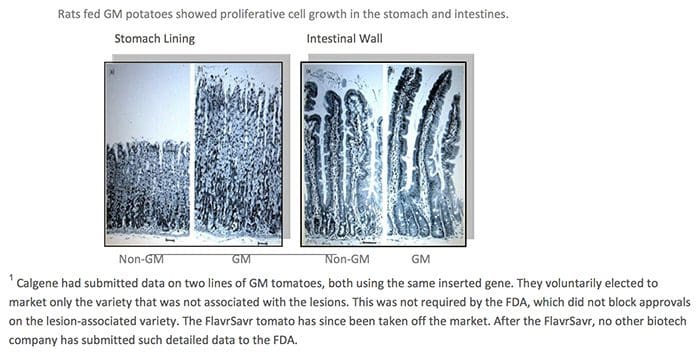 GM Diets Cause Liver Damage
GM Diets Cause Liver Damage
The state of the liver�a main detoxifier for the body�is another indicator of toxins.
- Rats fed the GNA lectin potatoes described above had smaller and partially atrophied livers.28
- Rats fed Monsanto�s Mon 863 corn, engineered to produce Bt-toxin, had liver lesions and other indications of toxicity.29
- Rabbits fed GM soy showed altered enzyme production in their livers as well as higher metabolic activity.30
- The livers of rats fed Roundup Ready canola were 12%�16% heavier, possibly due to liver disease or inflammation.31
- Microscopic analysis of the livers of mice fed Roundup Ready soybeans revealed altered gene expression and structural and functional changes (see photos).32 Many of these changes reversed after the mice diet was switched to non-GM soy, indicating that GM soy was the culprit. The findings, according to molecular geneticist Michael Antoniou, PhD, �are not random and must reflect some �insult� on the liver by the GM soy.� Antoniou, who does human gene therapy research in King�s College London, said that although the long-term consequences of the GM soy diet are not known, it �could lead to liver damage and consequently general toxemia.�33
- Rats fed Roundup Ready soybeans also showed structural changes in their livers. 34
 GM Fed Animals Had Higher Death Rates & Organ Damage
GM Fed Animals Had Higher Death Rates & Organ Damage
In the FlavrSavr tomato study, a note in the appendix indicated that 7 of 40 rats died within two weeks and were replaced.35 In another study, chickens fed the herbicide tolerant �Liberty Link� corn died at twice the rate of those fed natural corn.36 But in these two industry-funded studies, the deaths were dismissed without adequate explanation or follow-up.
In addition, the cells in the pancreas of mice fed Roundup Ready soy had profound changes and produced significantly less digestive enzymes;37 in rats fed a GM potato, the pancreas was enlarged.38 In various analyses of kidneys, GM-fed animals showed lesions, toxicity, altered enzyme production or inflammation.39,40 Enzyme production in the hearts of rabbits was altered by GM soy.41 And GM potatoes caused slower growth in the brain of rats.42 A team of independent scientists re-analyzed the raw data in three Monsanto 90-day rat feeding studies and saw signs of toxicity in the liver and kidneys, as well as effects in the heart, adrenal glands, spleen, and blood.43 In one of the only long-term feeding studies, rats fed Roundup Ready corn for three years for 24 months (or even just low concentrations of Roundup in their drinking water) suffered significant damage to their kidneys, livers, and pituitary glands. They also died prematurely and had many massive tumors�as large as 25% of their body weight.44
Reproductive Failures & Infant Mortality
The testicles of both mice and rats fed Roundup Ready soybeans showed dramatic changes. In rats, the organs were dark blue instead of pink (see photos on next page).45 In mice, young sperm cells were altered.46 Embryos of GM soy-fed mice also showed temporary changes in their DNA function, compared to those whose parents were fed non-GM soy.47�Female rats fed GM soy showed changes in their uterus, ovaries, and hormonal balance.48 By the third generation, most hamsters fed GM soy were unable to have babies. The infant mortality was 4-5 times greater than controls, and many of the GMO-fed third generation had hair growing in their mouths.49
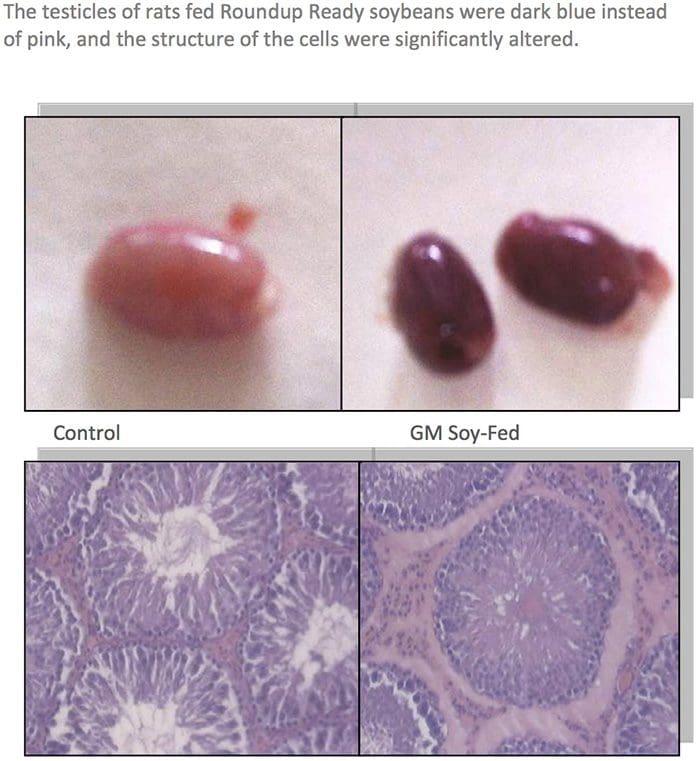
An Austrian government study showed that mice fed GM corn (Bt and Roundup Ready) had fewer babies and smaller babies.50 More dramatic results were discovered by a leading scientist at the Russian National Academy of sciences. Female rats were fed GM soy, starting two weeks before they were mated.
- Over a series of three experiments, 51.6 percent of the offspring from the GM-fed group died within the first three weeks, compared to 10 percent from the non-GM soy group, and 8.1 percent for non-soy controls.
- �High pup mortality was characteristic of every litter from mothers fed the GM soy flour.�51
- The average size and weight of the GM-fed offspring was quite a bit smaller (see photo on next page).52
- In a preliminary study, the GM-fed offspring were unable to conceive.53After the three feeding trials, the supplier of rat food used at the Russian laboratory began using GM soy in their formulation. Since all the rats housed at the facility were now eating GM soy, no non-GM fed controls were available for subsequent GM feeding trials; follow-up studies were canceled. After two months on the GM soy diet, however, the infant mortality rate of rats throughout the facility had skyrocketed to 55.3 percent (99 of 179).54
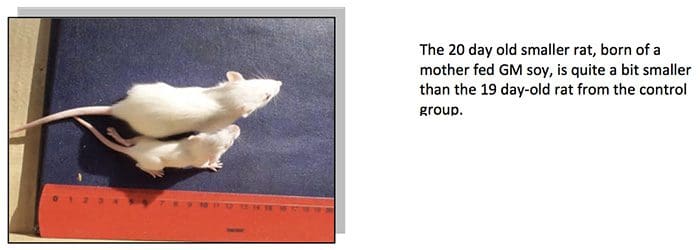
Farmers Report Livestock Sterility & Deaths
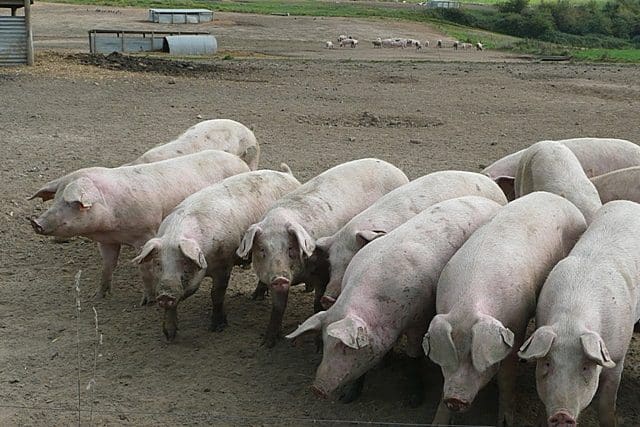 About two dozen farmers reported that their pigs had reproductive problems when fed certain varieties of Bt corn. Pigs were sterile, had false pregnancies, or gave birth to bags of water. Cows and bulls also became sterile. Bt corn was also implicated by farmers in the deaths of cows, horses, water buffaloes, and chickens.55
About two dozen farmers reported that their pigs had reproductive problems when fed certain varieties of Bt corn. Pigs were sterile, had false pregnancies, or gave birth to bags of water. Cows and bulls also became sterile. Bt corn was also implicated by farmers in the deaths of cows, horses, water buffaloes, and chickens.55
When Indian shepherds let their sheep graze continuously on Bt cotton plants, within 5-7 days, one out of four sheep died. There was an estimated 10,000 sheep deaths in the region in 2006, with more reported in 2007. Post mortems on the sheep showed severe irritation and black patches in both intestines and liver (as well as enlarged bile ducts). Investigators said preliminary evidence �strongly suggests that the sheep mortality was due to a toxin. . . . most probably Bt-toxin.�56 In a small feeding study, 100% of sheep fed Bt cotton died within 30 days. Those fed natural plants had no symptoms.
Buffalo that grazed on natural cotton plants for years without incident react to the Bt variety. In one village in Andhra Pradesh, for example, 13 buffalo grazed on Bt cotton plants for a single day. All died within 3 days.57 Investigators in the state of Haryana, India, report that most buffalo that ate GM cottonseed had reproductive complications such as premature deliveries, abortions, infertility, and prolapsed uteruses. Many young calves and adult buffaloes died.
GM Crops Trigger Immune Reactions & May Cause Allergies
 Allergic reactions occur when the immune system interprets something as foreign, different, and offensive, and reacts accordingly. All GM foods, by definition, have something foreign and different. And several studies show that they provoke reactions. Rats fed Monsanto�s GM corn, for example, had a significant increase in blood cells related to the immune system.58 GM potatoes caused the immune system of rats to respond more slowly.59 And GM peas provoked an inflammatory response in mice, suggesting that it might cause deadly allergic reactions in people.60
Allergic reactions occur when the immune system interprets something as foreign, different, and offensive, and reacts accordingly. All GM foods, by definition, have something foreign and different. And several studies show that they provoke reactions. Rats fed Monsanto�s GM corn, for example, had a significant increase in blood cells related to the immune system.58 GM potatoes caused the immune system of rats to respond more slowly.59 And GM peas provoked an inflammatory response in mice, suggesting that it might cause deadly allergic reactions in people.60
It might be difficult to identify whether GM foods were triggering allergic responses in the population, since very few countries conduct regular studies or keep careful records. One country that does have an annual evaluation is the UK. Soon after GM soy was introduced into the British diet, researchers at the York Laboratory reported that allergies to soy had skyrocketed by 50% in a single year.61 Although no follow-up studies were conducted to see if GM soy was the cause, there is evidence showing several ways in which it might have contributed to the rising incidence of allergies:
- The only significant variety of GM soy is Monsanto�s �Roundup Ready� variety, planted in 89% of US soy acres. A foreign gene from bacteria (with parts of virus and petunia DNA) is inserted, which allows the plant to withstand Roundup herbicide. The protein produced by the bacterial gene has never been part of the human food supply. Because people aren�t usually allergic to a food until they have eaten it several times, it would be difficult to know in advance if the protein was an allergen. Without a surefire method to identify allergenic GM crops, the World Health Organization (WHO) and others recommend examining the properties of the protein to see if they share characteristics with known allergens. One method is to compare the amino acid sequence of the novel protein with a database of allergens. If there is a match, according to the WHO, the GM crop should either not be commercialized or additional testing should be done. Sections of the protein produced in GM soy are identical to shrimp and dust mite allergens,62 but the soybean was introduced before WHO criteria were established and the recommended additional tests were not conducted. If the protein does trigger reactions, the danger is compounded by the finding that the Roundup Ready gene transfers into the DNA of human gut bacteria and may continuously produce the protein from within our intestines.63
- In addition to the herbicide tolerant protein, GM soybeans contain a unique, unexpected protein, which likely came about from the changes incurred during the genetic engineering process. Scientists found that this new protein was able to bind with IgE antibodies, suggesting that it may provoke dangerous allergic reactions. The same study revealed that one human subject showed a skin prick immune response only to GM soy, but not to natural soy.64 These results must be considered preliminary,�as the non-GM soy was a wild type and not necessarily comparable to the GM variety. Another study showed that the levels of one known soy allergen, called trypsin inhibitor, were as much as seven times higher in cooked GM soy compared to a non-GM control.65 This was Monsanto�s own study, and did use comparable controls.
- GM soy also produces an unpredicted side effect in the pancreas of mice�the amount of digestive enzymes produced is dramatically reduced.66 If a shortage of enzymes caused food proteins to breakdown more slowly, then they have more time to trigger allergic reactions. Thus, digestive problems from GM soy might promote allergies to a wide range of proteins, not just soy.
- The higher amount of Roundup herbicide residues on GM soy might create reactions in consumers. In fact, many of the symptoms identified in the UK soy allergy study are among those related to glyphosate exposure. [The allergy study identified irritable bowel syndrome, digestion problems, chronic fatigue, headaches, lethargy, and skin complaints, including acne and eczema, all related to soy consumption. Symptoms of glyphosate exposure include nausea, headaches, lethargy, skin rashes, and burning or itchy skin. It is also possible that glyphosate�s breakdown product aminomethylphosphonic acid (AMPA), which accumulates in GM soybeans after each spray, might contribute to allergies.]
It is interesting to note that in the five years immediately after GM soy was introduced, US peanut allergies doubled. It is known that a protein in natural soybeans cross-reacts with peanut allergies, i.e. soy may trigger reactions in some people who are allergic to peanuts.67 Given the startling increase in peanut allergies, scientists should investigate whether this cross-reactivity has been amplified in GM soy.
Roundup, tumors, etc.
BT-Toxin, Produced In GM Corn & Cotton, May Cause Allergies
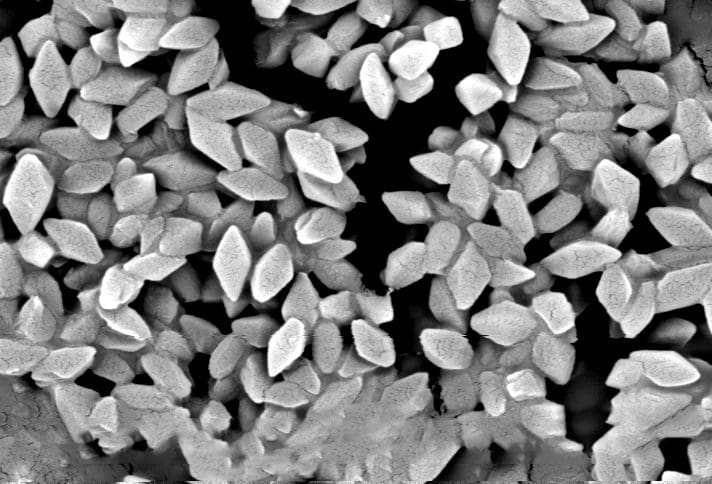 For years, organic farmers and others have sprayed crops with solutions containing natural Bt bacteria as a method of insect control. The toxin creates holes in their stomach and kills them. Genetic engineers take the gene that produces the toxin in bacteria and insert it into the DNA of crops so that the plant does the work, not the farmer. The fact that we consume that toxic pesticide in every bite of Bt corn is hardly appetizing.
For years, organic farmers and others have sprayed crops with solutions containing natural Bt bacteria as a method of insect control. The toxin creates holes in their stomach and kills them. Genetic engineers take the gene that produces the toxin in bacteria and insert it into the DNA of crops so that the plant does the work, not the farmer. The fact that we consume that toxic pesticide in every bite of Bt corn is hardly appetizing.
Biotech companies claim that Bt-toxin has a history of safe use, is quickly destroyed in our stomach, and wouldn�t react with humans or mammals in any event. Studies verify, however, that natural Bt-toxin is not fully destroyed during digestion and does react with mammals. Mice fed Bt-toxin, for example, showed an immune response as potent as cholera toxin, 68, became immune sensitive to formerly harmless compounds,69 and had damaged and altered cells in their small intestines.70 A 2008 Italian government study found that Bt corn provoked immune responses in mice.71 Moreover, when natural Bt was sprayed over areas around Vancouver and Washington State to fight gypsy moths, about 500 people reported reactions�mostly allergy or flu-like symptoms.72,73 Farm workers and others also report serious reactions7475767778 and authorities have long acknowledged that �people with compromised immune systems or preexisting allergies may be particularly susceptible to the effects of Bt.�79
The Bt-toxin produced in GM crops is �vastly different from the bacterial [Bt-toxins] used in organic and traditional farming and forestry.�80 The plant produced version is designed to be more toxic than natural varieties,81 and is about 3,000-5,000 times more concentrated than the spray form. And just like the GM soy protein, the Bt protein in GM corn varieties has a section of its amino acid sequence identical to a known allergen (egg yolk). The Bt protein also fails other allergen criteria recommended by the WHO, i.e. the protein is too resistant to break down during digestion and heat.
A 2011 study published in the Journal of Applied Toxicology showed that when Bt-toxin derived from Monsanto�s corn was exposed to human cells, the toxin disrupts the membrane in just 24 hours, causing certain fluid to leak through the cell walls. The authors specifically note, �This may be due to pore formation like in insect cells.� In other words, the toxin may be creating small holes in human cells in the same manner that it kills insects. The researchers �documented that modified Bt toxins [from GM plants] are not inert on human cells, but can exert toxicity.�82 A 2011 Canadian study conducted at Sherbrooke Hospital discovered that�93% of the pregnant women they tested had Bt-toxin from Monsanto�s corn in their blood. And so did 80% of their unborn�fetuses. 83
If Bt-toxin causes allergies, then gene transfer carries serious ramifications. If Bt genes relocate to human gut bacteria, our intestinal flora may be converted into living pesticide factories, possibly producing Bt-toxin inside of us year after year. The UK Joint Food Safety and Standards Group also described gene transfer from a different route. They warned that genes from inhaled pollen might transfer into the DNA of bacteria in the respiratory system.84 Although no study has looked into that possibility, pollen from a Bt cornfield appears to have been responsible for allergic-type reactions.
In 2003, during the time when an adjacent Bt cornfield was pollinating, virtually an entire Filipino village of about 100 people was stricken by mysterious skin, respiratory, and intestinal reactions.85 The symptoms started with those living closest to the field and spread to those further away. Blood samples from 39 individuals showed antibodies in response to Bt-toxin, supporting�but not proving�a link. When the same corn was planted in four other villages the following year, however, the symptoms returned in all four areas�only during the time of pollination.86
Bt-toxin might also trigger reactions by skin contact. In 2005, a medical team reported that hundreds of agricultural workers in India are developing allergic symptoms when exposed to Bt cotton, but not when
axposed to natural varieties.87 They say reactions come from picking the cotton, cleaning it in factories, loading it onto trucks, or even leaning against it. Their symptoms are virtually identical to those described by the 500 people in Vancouver and Washington who were sprayed with Bt.
Government Evaluations Miss Most Health Problems
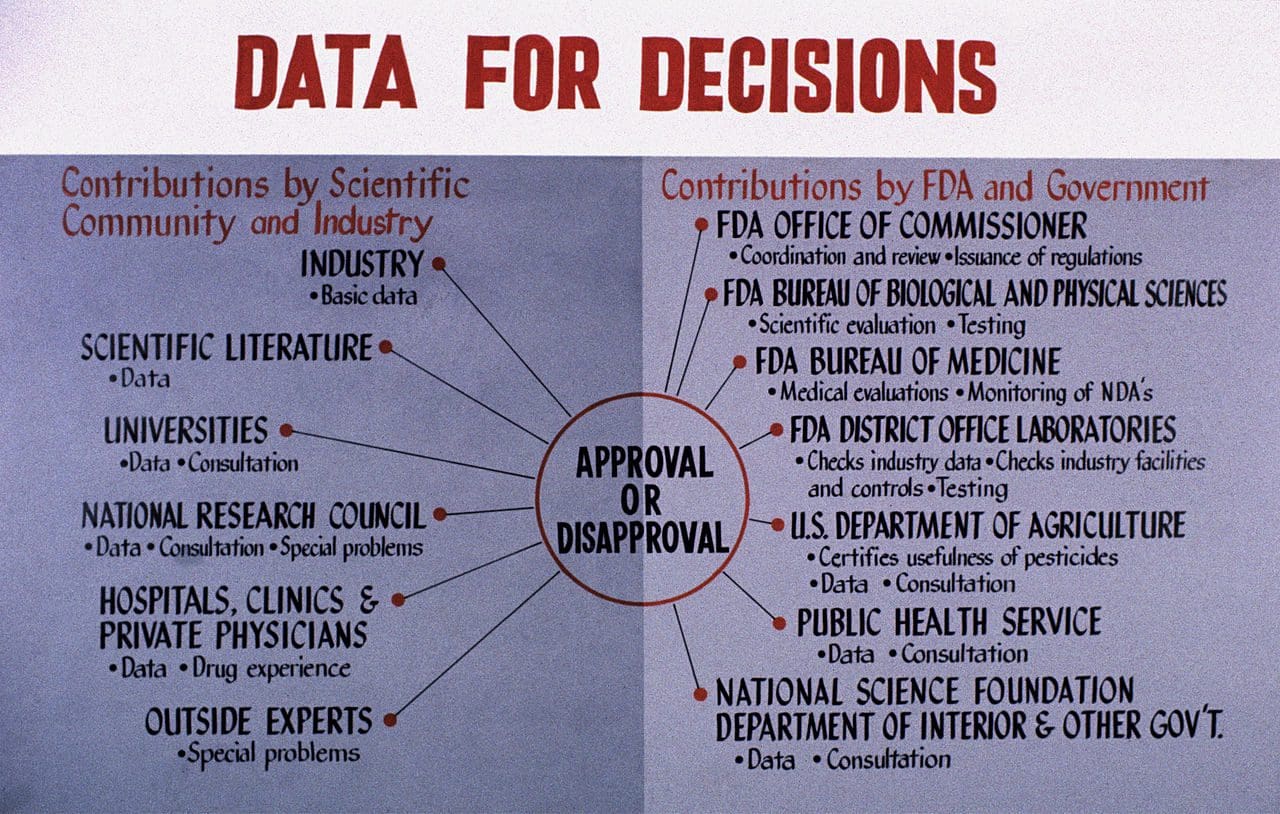 Although the number of safety studies on GM foods is quite small, it has validated the concerns expressed by FDA scientists and others. Unfortunately, government safety assessments worldwide are not competent to even identify most of the potential health problems described above, let alone protect its citizens from the effects.88
Although the number of safety studies on GM foods is quite small, it has validated the concerns expressed by FDA scientists and others. Unfortunately, government safety assessments worldwide are not competent to even identify most of the potential health problems described above, let alone protect its citizens from the effects.88
A 2000 review of approved GM crops in Canada by professor E. Ann Clark, PhD, for example, reveals that 70% (28 of 40) �of the currently available GM crops . . . have not been subjected to any actual lab or animal toxicity testing, either as refined oils for direct human consumption or indirectly as feedstuffs for livestock. The same finding pertains to all three GM tomato decisions, the only GM flax, and to five GM corn crops.� In the remaining 30% (12) of the other crops tested, animals were not fed the whole GM feed. They were given just the isolated GM protein that the plant was engineered to produce. But even this protein was not extracted from the actual GM plant. Rather, it was manufactured in genetically engineered bacteria. This method of testing would never identify problems associated with collateral damage to GM plant DNA, unpredicted changes in the GM protein, transfer of genes to bacteria or human cells, excessive herbicide residues, or accumulation of toxins in the food chain, among others. Clark asks, �Where are the trials showing lack of harm to fed livestock, or that meat and milk from livestock fed on GM feedstuffs are safe?�89
Epidemiologist and GM safety expert Judy Carman, PhD, MPH, shows that assessments by Food Safety Australia New Zealand (FSANZ) also overlook serious potential problems, including cancer, birth defects, or long-term effects of nutritional deficiencies. 90
�A review of twelve reports covering twenty-eight GM crops – four soy, three corn, ten potatoes, eight canola, one sugar beet and two cotton�revealed no feeding trials on people. In addition, one of the GM corn varieties had gone untested on animals. Some seventeen foods involved testing with only a single oral gavage (a type of forced-feeding), with observation for seven to fourteen days, and only of the substance that had been genetically engineered to appear [the GM protein], not the whole food. Such testing assumes that the only new substance that will appear in the food is the one genetically engineered to appear, that the GM plant- produced substance will act in the same manner as the tested substance that was obtained from another source [GM bacteria], and that the substance will create disease within a few days. All are untested hypotheses and make a mockery of GM proponents� claims that the risk assessment of GM foods is based on sound science. Furthermore, where the whole food was given to animals to eat,�sample sizes were often very low�for example, five to six cows per group for Roundup Ready soy�and they were fed for only four weeks.�91
Dr. Carman points out that GM �experiments used some very unusual animal models for human health, such as chickens, cows, and trout. Some of the measurements taken from these animals are also unusual measures of human health, such as abdominal fat pad weight, total de-boned breast meat yield, and milk production.� In her examination of the full range of submittals to authorities in Australia and New Zealand, she says that there was no proper evaluation of �biochemistry, immunology, tissue pathology, and gut, liver, and kidney function.�92 Writing on behalf of the Public Health Association of Australia, Dr. Carman says, �The effects of feeding people high concentrations of the new protein over tens of years cannot be determined by feeding 20 mice a single oral gavage of a given high concentration of the protein and taking very basic data for 13-14 days.�93
The FDA’s Fake Safety Assessments
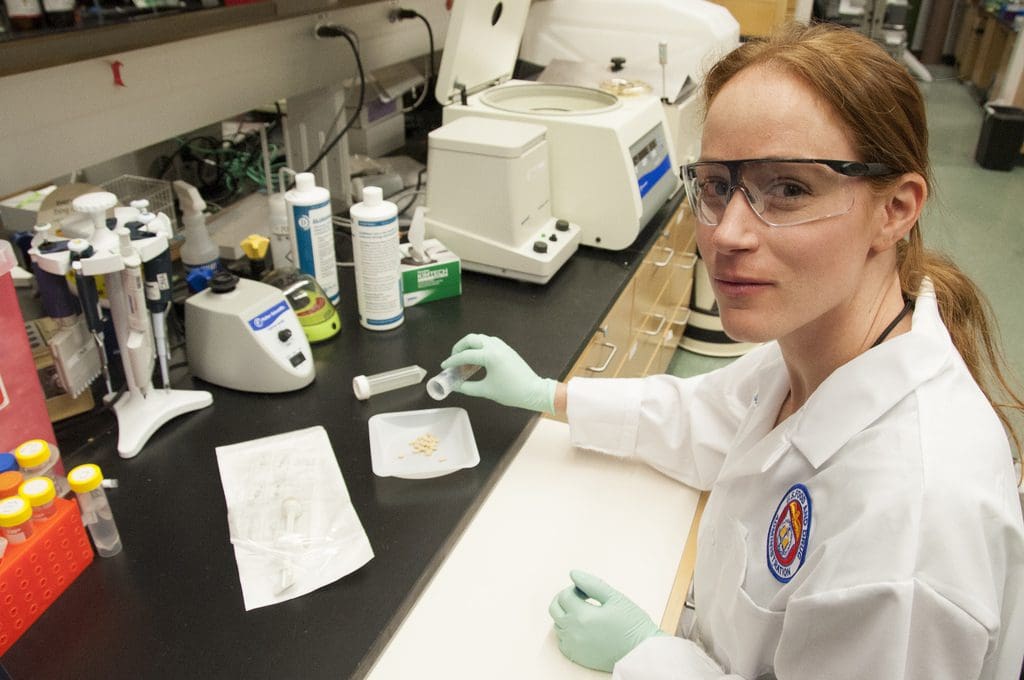 Submissions to the US Food and Drug Administraion (FDA) may be worse than in other countries, since the agency doesn�t actually require any data. Their policy says that biotech companies can determine if their own foods are safe. Anything submitted is voluntary and, according to former Environmental Protection Agency scientist Doug Gurian-Sherman, PhD, �often lack[s] sufficient detail, such as necessary statistical analyses needed for an adequate safety evaluation.� Using Freedom of Information Requests, Dr. Gurian-Sherman analyzed more than a fourth of the data summaries (14 of 53) of GM crops reviewed by the FDA. He says, �The FDA consultation process does not allow the agency to require submission of data, misses obvious errors in company- submitted data summaries, provides insufficient testing guidance, and does not require sufficiently detailed data to enable the FDA to assure that GE crops are safe to eat.�94 Similarly, a Friends of the Earth review of company and FDA documents concluded:
Submissions to the US Food and Drug Administraion (FDA) may be worse than in other countries, since the agency doesn�t actually require any data. Their policy says that biotech companies can determine if their own foods are safe. Anything submitted is voluntary and, according to former Environmental Protection Agency scientist Doug Gurian-Sherman, PhD, �often lack[s] sufficient detail, such as necessary statistical analyses needed for an adequate safety evaluation.� Using Freedom of Information Requests, Dr. Gurian-Sherman analyzed more than a fourth of the data summaries (14 of 53) of GM crops reviewed by the FDA. He says, �The FDA consultation process does not allow the agency to require submission of data, misses obvious errors in company- submitted data summaries, provides insufficient testing guidance, and does not require sufficiently detailed data to enable the FDA to assure that GE crops are safe to eat.�94 Similarly, a Friends of the Earth review of company and FDA documents concluded:
�If industry chooses to submit faulty, unpublishable studies, it does so without consequence. If it should respond to an agency request with deficient data, it does so without reprimand or follow-up. . . . If a company finds it disadvantageous to characterize its product, then its properties remain uncertain or unknown. If a corporation chooses to ignore scientifically sound testing standards . . . then faulty tests are conducted instead, and the results are considered legitimate. In the area of genetically engineered food regulation, the �competent� agencies rarely if ever (know how to) conduct independent research to verify or supplement industry findings.� 95
At the end of the consultation, the FDA doesn�t actually approve the crops. Rather, they issue a letter that includes a statement such as the following:
�Based on the safety and nutritional assessment you have conducted, it is our understanding that Monsanto has concluded that corn products derived from this new variety are not materially different in composition, safety, and other relevant parameters from corn currently on the market, and that the genetically modified corn does not raise issues that would require premarket review or approval by FDA. . . . As you are aware, it is Monsanto�s responsibility to ensure that foods marketed by the firm are safe, wholesome and in compliance with all applicable legal and regulatory requirements.�96
Company Research Is Secret, Inadequate & Flawed
 The unpublished industry studies submitted to regulators are typically kept secret based on the claim that it is �confidential business information.� The Royal Society of Canada is one of many organizations that condemn this practice. They wrote:
The unpublished industry studies submitted to regulators are typically kept secret based on the claim that it is �confidential business information.� The Royal Society of Canada is one of many organizations that condemn this practice. They wrote:
�In the judgment of the Expert Panel, the more regulatory agencies limit free access to the data upon which their decisions are based, the more compromised becomes the claim that the regulatory process is �science based.� This is due to a simple but well- understood requirement of the scientific method itself�that it be an open, completely transparent enterprise in which any and all aspects of scientific research are open to full review by scientific peers. Peer review and independent corroboration of research findings are axioms of the scientific method, and part of the very meaning of the objectivity and neutrality of science.�97
Whenever private submissions are made public through lawsuits or Freedom of Information Act Requests, it becomes clear why companies benefit from secrecy. The quality of their research is often miserable, incompetent, and unacceptable for peer-review. In 2000, for example, after the potentially allergenic StarLink corn was found to have contaminated the food supply, the corn�s producer, Aventis CropScience, presented wholly inadequate safety data to the EPA�s scientific advisory panel. One frustrated panel member, Dean Metcalfe, MD,�the government�s top allergist�said during a hearing, �Most of us review for a lot of journals. And if this were presented for publication in the journals that I review for, it would be sent back to the authors with all of these questions. It would be rejected.�98
Unscientific Assumptions Are The Basis Of Approvals
Professor Clark, who analyzed submissions to Canadian regulators, concluded, �Most or all of the conclusions of food safety for individual GM crops are based on inferences and assumptions, rather than on actual testing.� For example, rather than actually testing to see if the amino acid sequence produced by their inserted gene is correct, �the standard practice,� according to research analyst William Freese, �is to sequence just 5 to 25 amino acids,�99 even if the protein has more than 600 in total. If the short sample matches what is expected, they assume that the rest are also fine. If they are wrong, however, a rearranged protein could be quite dangerous.
Monsanto�s submission to Australian regulators on their high lysine GM corn provides an excellent example of overly optimistic assumptions used in place of science. The gene inserted into the corn produces a protein that is naturally found in soil. Monsanto claimed that since people consume small residues of soil on fruits and vegetables, the protein has a history of safe consumption. Based on the amount of GM corn protein an average US citizen would consume (if all their corn were Monsanto�s variety), they would eat up to 4 trillion times the amount normally consumed through soil. In other words, �for equivalent exposure� of the protein from soil �people would have to eat . . . nearly as much as 10,000kg [22,000 pounds, every] second 24 hours a day seven days a week.�100
Studies Are Rigged To Avoid Finding Problems
 In addition, to relying on untested assumptions, industry-funded research is often designed specifically to force a conclusion of safety. In the high lysine corn described above, for example, the levels of certain nutritional components (i.e. protein content, total dietary fiber, acid detergent fiber, and neutral detergent fiber) were far outside the normal range for corn. Instead of comparing their corn to normal controls, which would reveal this disparity, Monsanto compared it to obscure corn varieties that were also substantially outside the normal range on precisely these values. Thus, their study found no statistical differences by design.
In addition, to relying on untested assumptions, industry-funded research is often designed specifically to force a conclusion of safety. In the high lysine corn described above, for example, the levels of certain nutritional components (i.e. protein content, total dietary fiber, acid detergent fiber, and neutral detergent fiber) were far outside the normal range for corn. Instead of comparing their corn to normal controls, which would reveal this disparity, Monsanto compared it to obscure corn varieties that were also substantially outside the normal range on precisely these values. Thus, their study found no statistical differences by design.
When Monsanto learned that independent researchers were to publish a study in July 1999 showing that GM soy contains 12%-14% less cancer-fighting phytoestrogens, the company responded with its own study, concluding that soy�s phytoestrogen levels vary too much to even carry out a statistical analysis. Researchers failed to disclose, however, that they had instructed the laboratory to use an obsolete method of detection�one that had been prone to highly variable results.101
When Aventis prepared samples to see if the potential allergen in StarLink corn remained intact after cooking, instead of using the standard 30-minute treatment, they heated corn for two hours.102
To show that pasteurization destroyed bovine growth hormone in milk from cows treated with rbGH, scientists pasteurized the milk 120 times longer than normal. Unable to destroy more than 19%, they then spiked the milk with a huge amount of the hormone and repeated the long pasteurization, destroying 90%.103 (The FDA reported that pasteurization destroys 90% of the hormone.104) To demonstrate that injections of rbGH did not interfere with cow�s fertility, Monsanto apparently added cows to the study that were pregnant prior to injection.105
And in order to prove that the protein from their GM crops breaks down quickly during simulated digestion, biotech companies used thousands of times the amount of digestive enzymes and a much stronger acid compared to that recommended by the World Health Organization.106
Other methods used to hide problems are varied and plentiful. For example, researchers:
- Use highly variable animal starting weights to hinder detection of food-related changes
- Keep feeding studies short to miss long-term impacts
- Test effects of Roundup Ready soybeans that have not been sprayed with Roundup
- Avoid feeding animals the actual GM crop, but give them instead a single dose of the GM protein that was produced inside GM bacteria
- Use too few subjects to derive statistically significant results
- Use poor statistical methods or simply leave out essential methods, data, or statistics
- Use irrelevant control groups, and employ insensitive evaluation techniques
Roundup Ready Soybeans: Case Study Of Flawed Research
 Monsanto�s 1996 Journal of Nutrition studies on Roundup Ready soybeans107,108 provide plenty of examples of scientific transgressions. Although the study has been used often by the industry as validation for safety claims, experts working in the field were not impressed. For example, Dr. Arpad Pusztai was commissioned at the time by the UK government to lead a 20 member consortium in three institutions to develop rigorous testing protocols on GM foods�protocols that were never implemented. Dr. Pusztai, who had published several studies in that same nutrition journal, said the Monsanto paper was not �up to the normal journal standards.� He said, �It was obvious that the study had been designed to avoid finding any problems. Everybody in our consortium knew this.� Some of the flaws include:
Monsanto�s 1996 Journal of Nutrition studies on Roundup Ready soybeans107,108 provide plenty of examples of scientific transgressions. Although the study has been used often by the industry as validation for safety claims, experts working in the field were not impressed. For example, Dr. Arpad Pusztai was commissioned at the time by the UK government to lead a 20 member consortium in three institutions to develop rigorous testing protocols on GM foods�protocols that were never implemented. Dr. Pusztai, who had published several studies in that same nutrition journal, said the Monsanto paper was not �up to the normal journal standards.� He said, �It was obvious that the study had been designed to avoid finding any problems. Everybody in our consortium knew this.� Some of the flaws include:
- Researchers tested GM soy on mature animals, not young ones. Young animals use protein to build their muscles, tissues, and organs. Problems with GM food could therefore show up in organ and body weight. But adult animals use the protein for tissue renewal and energy. �With a nutritional study on mature animals,� says Dr. Pusztai, �you would never see any difference in organ weights even if the food turned out to be anti-nutritional. The animals would have to be emaciated or poisoned to show anything.�
- If there were an organ development problem, the study wouldn�t have picked it up since the researchers didn�t even weigh the organs.
- In one of the trials, researchers substituted only one tenth of the natural protein with GM soy protein. In two others, they diluted their GM soy six- and twelve-fold. 109 Scientists Ian Pryme, PhD, of Norway and Rolf Lembcke, PhD, of Denmark wrote, the �level of the GM soy was too low, and would probably ensure that any possible undesirable GM effects did not occur.�
- Pryme and Lembcke, who published a paper in Nutrition and Health that analyzed all published peer-reviewed feeding studies on GM foods (10 as of 2003), also pointed out that the percentage of protein in the feed used in the Roundup Ready study was �artificially too high.� This �would almost certainly mask, or at least effectively reduce, any possible effect of the [GM soy].� They said it was �highly likely that all GM effects would have been diluted out.� 110
- Proper compositional studies filter out effects of weather or geography by comparing plants grown at the same time in the same location. Monsanto, however, pooled data from several locations, which makes it difficult for differences to be statistically significant. Nonetheless, the data revealed significant differences in the ash, fat, and carbohydrate content. Roundup Ready soy meal also contained 27% more trypsin inhibitor, a potential allergen. Also, cows fed GM soy produced milk with a higher fat content, demonstrating another disparity between the two types of soy.
- One field trial, however, did grow GM and non-GM plants next to each other, but this data was not included in the paper. Years after the study appeared, medical writer Barbara Keeler recovered the data that had been omitted. It showed that Monsanto�s GM soy had significantly lower levels of protein, a fatty acid, and phenylalanine, an essential amino acid. Also, toasted GM soy meal contained nearly twice the amount of a lectin�a substance that may interfere with the body�s ability to assimilate other nutrients. And the amount of trypsin inhibitor in cooked GM soy was as much as seven times higher than in a cooked non-GM control.
- The study also omitted many details normally required for a published paper. According to Pryme and Lembcke, �No data were given for most of the parameters.�
- And when researchers tested the effects of Roundup Ready protein on animals, they didn�t extract the protein from the soybeans. Instead, they derived it from GM bacteria, claiming the two forms of protein were equivalent. There are numerous ways, however, in which the protein in the soy may be different. In fact, nine years after this study was published, another study showed that the gene inserted into the soybeans produced unintended aberrant RNA strands, meaning that the protein may be quite different than what was intended.111
In Pryme and Lembcke�s analysis, it came as no surprise that this Monsanto study, along with the other four peer-reviewed animal feeding studies that were �performed more or less in collaboration with private companies,� reported no negative effects of the GM diet. �On the other hand,� they wrote, �adverse effects were reported (but not explained) in [the five] independent studies.� They added, �It is remarkable that these effects have all been observed after feeding for only 10�14 days.�112
Toxic GM Foods Could Have Been Approved
Two GM foods whose commercialization was stopped because of negative test results give a chilling example of what may be getting through. Rats fed GM potatoes had potentially precancerous cell growth in the stomach and intestines, less developed brains, livers, and testicles, partial atrophy of the liver, and damaged immune systems.113 GM peas provoked an inflammatory response in mice, suggesting that the peas might trigger a deadly anaphylactic shock in allergic humans.114 Both of these dangerous crops, however, could easily have been approved. The problems were only discovered because the researchers used advanced tests that were never applied to GM crops already on the market. Both would have passed the normal tests that companies typically use to get their products approved.
Ironically, when Monsanto was asked to comment on the pea study, their spokesperson said it demonstrated that the regulatory system works. He failed to disclose that none of his company�s GM crops had been put through such rigorous tests.
Rampant, Unrelenting Industry Bias
Industry-funded research that favors the funders is not new. Bias has been identified across several industries. In pharmaceuticals, for example, positive results are four times more likely if the drug�s manufacturer funds the study.115 When companies pay for the economic analyses of their own cancer drugs, the results are eight times more likely to be favorable.116 Compared to drug research, the potential for industry manipulation in GM crop studies is considerably higher. Unlike pharmaceutical testing, GM research has no standardized procedures dictated by regulators. GM studies are not usually published in peer-reviewed journals and are typically kept secret by companies and governments. There is little money available for rigorous independent research, so company evidence usually goes unchallenged and unverified. Most importantly, whereas drugs can show serious side-effects and still be approved, GM food cannot. There is no tolerance for adverse reactions; feeding trials must show no problems.
Thus, when industry studies show problems (in spite of their efforts to avoid them), serious adverse reactions and even deaths among GM-fed animals are ignored or dismissed as �not biologically significant� or due to �natural variations.� In the critical arena of food safety research, the biotech industry is without accountability, standards, or peer-review. They�ve got bad science down to a science.
Promoting & Regulating Don’t Mix
While such self-serving behavior may be expected from corporations, how come government bodies let such blatant scientific contortions pass without comment? One reason is that several regulatory agencies are also charged with promoting the interests of biotechnology. This is the official position of the FDA and other US government bodies, for example. Suzanne Wuerthele, PhD, a US EPA toxicologist, says, �This technology is being promoted, in the face of concerns by respectable scientists and in the face of data to the contrary, by the very agencies which are supposed to be protecting human health and the environment. The bottom line in my view is that we are confronted with the most powerful technology the world has ever known, and it is being rapidly deployed with almost no thought whatsoever to its consequences.�117
Canadian regulators are similarly conflicted. The Royal Society of Canada reported that, �In meetings with senior managers from the various Canadian regulatory departments . . . their responses uniformly stressed the importance of maintaining a favorable climate for the biotechnology industry to develop new products and submit them for approval on the Canadian market. . . . The conflict of interest involved in both promoting and regulating an industry or technology . . . is also a factor in the issue of maintaining the transparency, and therefore the scientific integrity, of the regulatory process. In effect, the public interest in a regulatory system that is �science based�. . . is significantly compromised when that openness is negotiated away by regulators in exchange for cordial and supportive relationships with the industries being regulated.�118
Many scientists on the European Food Safety Authority (EFSA) GMO Panel are personally aligned with biotech interests. According to Friends of the Earth (FOE), �One member has direct financial links with the biotech industry and others have indirect links, such as close involvement with major conferences organized by the biotech industry. Two members have even appeared in promotional videos produced by the biotech industry. . . . Several members of the Panel, including the chair Professor Kuiper, have been involved with the EU-funded ENTRANSFOOD project. The aim of this project was to agree [to] safety assessment, risk management, and risk communication procedures that would �facilitate market introduction of GMOs in Europe, and therefore bring the European industry in a competitive position.� Professor Kuiper, who coordinated the ENTRANSFOOD project, sat on a working group that also included staff from Monsanto, Bayer CropScience, and Syngenta.� In a statement reminiscent of the deceptive policy statement by the FDA, the FOE report concludes that EFSA is �being used to create a false impression of scientific agreement when the real situation is one of intense and continuing debate and uncertainty.�119
The pro-GM European Commission repeats the same ruse. According to leaked documents obtained by FOE, while they privately appreciate �the uncertainties and gaps in knowledge that exist in relation to the safety of GM crops, . . . the Commission normally keeps this uncertainty concealed from the public whilst presenting its decisions about the safety of GM crops and foods as being certain and scientifically based.� For example, the Commission privately condemned the submission information for one crop as �mixed, scarce, delivered consecutively all over years, and not convincing.� They said there is �No sufficient experimental evidence to assess the safety.�120
With an agenda to promote GM foods, regulators regularly violate their own laws. In Europe, the law requires that when EFSA and member states have different opinions, they �are obliged to co-operate with a view to either resolving the divergence or preparing a joint document clarifying the contentious scientific issues and identifying the relevant uncertainties in the data.�121 According to FOE, in the case of all GM crop reviews, none of these legal obligations were followed.122 The declaration of GRAS status by the FDA also deviated from the Food and Cosmetic Act and years of legal precedent. Some violations are more blatant. In India, one official tampered with the report on Bt cotton to increase the yield figures to favor Monsanto.123 In Mexico, a senior government official allegedly threatened a University of California professor, implying �We know where your children go to school,� trying to get him not to publish incriminating evidence that would delay GM approvals.124 In Indonesia, Monsanto gave bribes and questionable payments to at least 140 officials, attempting to get their genetically modified (GM) cotton approved.125
Manipulation Of Public Opinion
 When governments fail in their duty to keep corporations in check, the �protector� role should shift to the media, which acts as a watchdog to expose public dangers and governmental shortcomings. But mainstream media around the world has largely overlooked the serious problems associated with GM crops and their regulation. The reason for this oversight is varied and includes contributions from an aggressive public relations and disinformation campaign by the biotech industry, legal threats by biotech companies, and in some cases, the fear of losing advertising accounts. This last reason is particularly prevalent among the farm press, which receives much of its income from the biotech industry.
When governments fail in their duty to keep corporations in check, the �protector� role should shift to the media, which acts as a watchdog to expose public dangers and governmental shortcomings. But mainstream media around the world has largely overlooked the serious problems associated with GM crops and their regulation. The reason for this oversight is varied and includes contributions from an aggressive public relations and disinformation campaign by the biotech industry, legal threats by biotech companies, and in some cases, the fear of losing advertising accounts. This last reason is particularly prevalent among the farm press, which receives much of its income from the biotech industry.
Threatening letters from Monsanto�s attorneys have resulted in the cancellation of a five-part news series on their genetically engineered bovine growth hormone scheduled for a Fox TV station in Florida, as well as the cancellation of a book critical of Monsanto�s GMO products. A printer also shredded 14,000 copies of the Ecologist magazine issue entitled �The Monsanto Files,� due to fear of a Monsanto lawsuit. (See the chapter �Muscling the Media� in Seeds of Deception126 for more examples.)
The methods that biotech advocates use to manipulate public opinion research has become an art form. Consumer surveys by the International Food Information Council (IFIC), for example,whose supporters include the major biotech seed companies, offers conclusions such as �A growing majority of Americans support the benefits of food biotechnology as well as the US Food and Drug Administration�s (FDA) labeling policy.� But communications professor James Beniger, who was past president of the American Association for Public Opinion Research, described the surveys as �so biased with leading questions favoring positive responses that any results are meaningless.�127 The 2003 survey, for example, included gems such as:
�All things being equal, how likely would you be to buy a variety of produce, like tomatoes or potatoes, if it had been modified by biotechnology to taste better or fresher?� and
�Biotechnology has also been used to enhance plants that yield foods like cooking oils. If cooking oil with reduced saturated fat made from these new plants was available, what effect would the use of biotechnology have on your decision to buy this cooking oil?�128
A similar tactic was used at a December 11, 2007 focus group in Columbus, Ohio �designed� to show that consumers wanted to make it illegal for dairies to label their milk as free from Monsanto�s genetically engineered bovine hormone rBST. The facilitator said, �All milk contains hormones. There is no such thing as hormone-free milk. The composition of both types of milk is the same in all aspects. Now what do you think of a label that says �no added hormones?� Don�t you think it is deceiving and inappropriate to put �rBST-free� on labels?� Not only was the facilitator �leading the witness,� he presented false information. Milk from cows treated with rBST has substantially higher levels of Insulin-like Growth Factor-1,129 which has been linked to higher risk of cancer,130 and higher incidence of fraternal twins.131 It also has higher levels of bovine growth hormone, pus, and in some cases, antibiotics.
Another example of manipulated consumer opinion was found in a 2004 article in the British Food Journal, authored by four advocates of genetically modified (GM) foods.132 According to the peer-reviewed paper, when shoppers in a Canadian farm store were confronted with an informed and unbiased choice between GM corn and non-GM corn, most purchased the GM variety. This finding flew in the face of worldwide consumer resistance to GM foods, which had shut markets in Europe, Japan, and elsewhere. It also challenged studies that showed that the more information on genetically modified organisms (GMOs) consumers have, the less they trust them.133 The study, which was funded by the biotech-industry front group, Council for Biotechnology Information and the industry�s trade association, the Crop Protection Institute of Canada (now Croplife Canada), was given the Journal�s prestigious Award for Excellence for the Most Outstanding Paper of 2004 and has been cited often by biotech advocates.
Stuart Laidlaw, a reporter from Canada�s Toronto Star, visited the farm store several times during the study and described the scenario in his book Secret Ingredients. Far from offering unbiased choices, key elements appeared rigged to favor GM corn purchases. The consumer education fact sheets were entirely pro-GMO, and Doug Powell, the lead researcher, enthusiastically demonstrated to Laidlaw how he could convince shoppers to buy the GM varieties. He confronted a farmer who had already�purchased non-GM corn. After pitching his case for GMOs, Powell proudly had the farmer tell Laidlaw that he had changed his opinion and would buy GM corn in his next shopping trip.
Powell�s interference with shoppers� �unbiased� choices was nothing compared to the effect of the signs placed over the corn bins. The sign above the non-GM corn read, �Would you eat wormy sweet corn?� It further listed the chemicals that were sprayed during the season. By contrast, the sign above the GM corn stated, �Here�s What Went into Producing Quality Sweet Corn.� It is no wonder that 60% of shoppers avoided the �wormy corn.� In fact, it may be a testament to people�s distrust of GMOs that 40% still went for the �wormy� option.
Powell and his colleagues did not mention the controversial signage in their study. They claimed that the corn bins in the farm store were �fully labelled��either �genetically engineered Bt sweet corn� or �Regular sweet corn.� When Laidlaw�s book came out, however, Powell�s �wormy� sign was featured in a photograph,134 exposing what was later described by Cambridge University�s Dr. Richard Jennings as �flagrant fraud.� Jennings, who is a leading researcher on scientific ethics, says, �It was a sin of omission by failing to divulge information which quite clearly should have been disclosed.�135
In his defence, Powell claimed that his signs merely used the language of consumers and was �not intended to manipulate consumer purchasing patterns.� He also claimed that the �wormy� corn sign was only there for the first week of the trial and was then replaced by other educational messages. But eye witnesses and photographs demonstrate the presence of the sign long after Powell�s suggested date of replacement.136
Several scientists and outraged citizens say the paper should be withdrawn, but the Journal refused. In fact, the Journal�s editor has not even agreed to reconsider its Award for Excellence. A blatant propaganda exercise still stands validated as exemplary science.
Critics & Independent Scientists Are Attacked
 One of the most troubling aspects of the biotech debate is the attack strategy used on GMO critics and independent scientists. Not only are adverse findings by independent scientists often suppressed, ignored, or denied, researchers that discover problems from GM foods have been fired, stripped of responsibilities, deprived of tenure, and even threatened. Consider Dr. Pusztai, the world�s leading scientist in his field, who inadvertently discovered in 1998 that unpredictable changes in GM crops caused massive damage in rats. He went public with his concerns, was a hero at his prestigious institute for two days, and then, after the director received two phone calls allegedly from the UK Prime Minister�s office, was fired after 35 years and silenced with threats of a lawsuit. False statements were circulated to trash his reputation, which are recited by GMO advocates today.
One of the most troubling aspects of the biotech debate is the attack strategy used on GMO critics and independent scientists. Not only are adverse findings by independent scientists often suppressed, ignored, or denied, researchers that discover problems from GM foods have been fired, stripped of responsibilities, deprived of tenure, and even threatened. Consider Dr. Pusztai, the world�s leading scientist in his field, who inadvertently discovered in 1998 that unpredictable changes in GM crops caused massive damage in rats. He went public with his concerns, was a hero at his prestigious institute for two days, and then, after the director received two phone calls allegedly from the UK Prime Minister�s office, was fired after 35 years and silenced with threats of a lawsuit. False statements were circulated to trash his reputation, which are recited by GMO advocates today.
After University of California Professor Ignacio Chapela, PhD, published evidence that GM corn contaminated Mexico�s indigenous varieties, two fictitious internet characters created by Monsanto�s PR firm, the Bivings Group, initiated a brutal internet smear campaign, lying about Dr. Chapela and his research.
Irina Ermakova, PhD, a leading scientist at the Russian National Academy of Sciences, fed female rats GM soy and was stunned to discover that more than half their offspring died within three weeks�compared to only 10% from mothers fed non-GM soy. Without funding to extend her analysis, she labeled her work �preliminary,� published it in a Russian journal, and implored the scientific community to repeat the study. Two years later, no one has repeated it, but advocates use false or irrelevant arguments to divert attention from the shocking results and have tried to vilify Dr. Ermakova.
A New Zealand MP testified at the 2001 Royal Commission of Inquiry on Genetic Modification, �I have been contacted by telephone and e-mail by a number of scientists who have serious concerns . . . but who are convinced that if they express these fears publicly. . . or even if they asked the awkward and difficult questions, they will be eased out of their institution.� Indeed in 2007, after Professor Christian Velot, PhD, raised the difficult questions on GMOs at public conferences, his 2008 research funds were confiscated, his student assistants were re-assigned, and his position at the University of Paris-Sud faces early termination.
We Are The Guinea Pigs
 Since GM foods are not properly tested before they enter the market, consumers are the guinea pigs. But this doesn�t even qualify as an experiment. There are no controls and no monitoring. Given the mounting of evidence of harm, it is likely that GM foods are contributing to the deterioration of health in the United States, Canada, and other countries where it is consumed. But without post- marketing surveillance, the chances of tracing health problems to GM food are low. The incidence of a disease would have to increase dramatically before it was noticed, meaning that millions may have to get sick before a change is investigated. Tracking the impact of GM foods is even more difficult in North America, where the foods are not labeled.
Since GM foods are not properly tested before they enter the market, consumers are the guinea pigs. But this doesn�t even qualify as an experiment. There are no controls and no monitoring. Given the mounting of evidence of harm, it is likely that GM foods are contributing to the deterioration of health in the United States, Canada, and other countries where it is consumed. But without post- marketing surveillance, the chances of tracing health problems to GM food are low. The incidence of a disease would have to increase dramatically before it was noticed, meaning that millions may have to get sick before a change is investigated. Tracking the impact of GM foods is even more difficult in North America, where the foods are not labeled.
Regulators at Health Canada announced in 2002 that they would monitor Canadians for health problems from eating GM foods. A spokesperson said, �I think it�s just prudent and what the public expects, that we will keep a careful eye on the health of Canadians.� But according to CBC TV news, Health Canada �abandoned that research less than a year later saying it was �too difficult to put an effective surveillance system in place.�� The news anchor added, �So at this point, there is little research into the health effects of genetically modified food. So will we ever know for sure if it�s safe?�137
Not with the biotech companies in charge. Consider the following statement in a report submitted to county officials in California by pro-GM members of a task force. �[It is] generally agreed that long-term monitoring of the human health risks of GM food through epidemiological studies is not necessary because there is no scientific evidence suggesting any long-term harm from these foods.�138 Note the circular logic: Because no long-term epidemiological studies are in place, we have no evidence showing long- term harm. And since we don�t have any evidence of long-term harm, we don�t need studies to look for it.
What are these people thinking? Insight into the pro-GM mindset was provided by Dan Glickman, the US Secretary of Agriculture under President Clinton.
�What I saw generically on the pro-biotech side was the attitude that the technology was good, and that it was almost immoral to say that it wasn�t good, because it was going to solve the problems of the human race and feed the hungry and clothe the naked. . . . And there was a lot of money that had been invested in this, and if you�re against it, you�re Luddites, you�re stupid. That, frankly, was the side our government was on. Without thinking, we had basically taken this issue as a trade issue and they, whoever �they� were, wanted to keep our product out of their market. And they were foolish, or stupid, and didn�t have an effective regulatory system. There was rhetoric like that even here in this department. You felt like you were almost an alien, disloyal, by trying to present an open-minded view on some of the issues being raised. So I pretty much spouted the rhetoric that everybody else around here spouted; it was written into my speeches.�139
Fortunately, not everyone feels that questioning GM foods is disloyal. On the contrary, millions of people around the world are unwilling to participate in this uncontrolled experiment. They refuse to eat GM foods. Manufacturers in Europe and Japan have committed to avoid using GM ingredients. And the US natural foods industry, not waiting for the government to test or label GMOs, is now engaged in removing all remaining GM ingredients from their sector using a third party verification system. The Campaign for Healthier Eating in America will circulate non-GMO shopping guides in stores nationwide so that consumers have clear, healthy non-GMO choices. With no governmental regulation of biotech corporations, it is left to consumers to protect ourselves.
For a guide to avoiding GMOs, go to www.NonGMOShoppingGuide.com.
International bestselling author and independent filmmaker Jeffrey M. Smith is the Executive Director of the Institute for Responsible Technology and a leading spokesperson on the health dangers of GMOs. His first book, Seeds of Deception, is the world�s bestselling book on the subject. His second, Genetic Roulette: The Documented Health Risks of Genetically Engineered Foods, identifies 65 risks of GMOs and demonstrates how superficial government approvals are not competent to find most of them. Mr. Smith has pioneered the Campaign for Healthier Eating in America, designed to create the tipping point of consumer rejection against GMOs. See www.ResponsibleTechnology.org, www.NonGMOShoppingGuide.com.
Blank
References:
1 Jeffrey M. Smith, Genetic Roulette: The Documented Health Risks of Genetically Engineered Foods, Yes! Books, Fairfield, IA USA 2007
2 Kurt Eichenwald, et al, New York Times, �Biotechnology Food: From the Lab to a Debacle,� January 25, 2001
http://www.nytimes.com/2001/01/25/business/25FOOD.html?pagewanted=all
3 Kurt Eichenwald, et al, New York Times, �Biotechnology Food: From the Lab to a Debacle,� January 25, 2001
http://www.nytimes.com/2001/01/25/business/25FOOD.html?pagewanted=all
4 Dan Quayle, �Speech in the Indian Treaty Room of the Old Executive Office Building,� May 26, 1992.
5 For copies of FDA memos, see The Alliance for Bio-Integrity, www.biointegrity.org
6 Steven M. Druker, �How the US Food and Drug Administration approved genetically engineered foods despite the deaths one had caused and
the warnings of its own scientists about their unique risks,� Alliance for Bio-Integrity, http://www.biointegrity.org/ext-summary.html
7 Louis J. Pribyl, �Biotechnology Draft Document, 2/27/92,� March 6, 1992, www.biointegrity.org
http://www.biointegrity.org/FDAdocs/04/view1.html
8 �Statement of Policy: Foods Derived from New Plant Varieties,� Federal Register 57, no. 104 (May 29, 1992): 22991.
9 Linda Kahl, Memo to James Maryanski about Federal Register Document �Statement of Policy: Foods from Genetically Modified Plants,�
Alliance for Bio-Integrity(January 8, 1992) http://www.responsibletechnology.org/fraud/fda-quotes
10 See for example, �Good Enough To Eat?� New Scientist (February 9, 2002), 7.
11 �Health risks of genetically modified foods,� editorial, Lancet, 29 May 1999.
12 �Elements of Precaution: Recommendations for the Regulation of Food Biotechnology in Canada; An Expert Panel Report on the Future of
Food Biotechnology prepared by The Royal Society of Canada at the request of Health Canada Canadian Food Inspection Agency and
Environment Canada� The Royal Society of Canada, January 2001.
13 J. R. Latham, et al., �The Mutational Consequences of Plant Transformation,� The Journal of Biomedicine and Biotechnology 2006, Article ID
25376: 1-7; see also Allison Wilson, et. al., �Transformation-induced mutations in transgenic plants: Analysis and biosafety implications,�
Biotechnology and Genetic Engineering Reviews � Vol. 23, December 2006.
14 P. H. Bao, S. Granata, S. Castiglione, G. Wang, C. Giordani, E. Cuzzoni, G. Damiani, C. Bandi, S. K. Datta, K. Datta, I. Potrykus, A.
Callegarin and F. Sala, “Evidence for genomic changes in transgenic rice (Oryza sativa L.) recovered from protoplasts” Transgen Res 5 (1996):
97-103.; M. Labra, C. Savini, M. Bracale, N. Pelucchi, L. Colombo, M. Bardini and F. Sala, “Genomic changes in transgenic rice (Oryza sativa L.)
plants produced by infecting calli with Agrobacterium tumefaciens,” Plant Cell Rep 20 (2001): 325-330.
15 �Elements of Precaution: Recommendations for the Regulation of Food Biotechnology in Canada; An Expert Panel Report on the Future of
Food Biotechnology prepared by The Royal Society of Canada at the request of Health Canada Canadian Food Inspection Agency and
Environment Canada� The Royal Society of Canada, January 2001.
16 Edwin J. Mathews, Ph.D., in a memorandum to the Toxicology Section of the Biotechnology Working Group. Subject: Analysis of the Major
Plant Toxicants. Dated October 28, 1991
17 Division of Food Chemistry and Technology and Division of Contaminants Chemistry, �Points to Consider for Safety Evaluation of
Genetically Modified Foods: Supplemental Information,� November 1, 1991, http://www.responsibletechnology.org/fraud/fda-quotes
18 Netherwood et al, �Assessing the survival of transgenic plant DNA in the human gastrointestinal tract,� Nature Biotechnology 22 (2004): 2.
19 Division of Food Chemistry and Technology and Division of Contaminants Chemistry, �Points to Consider for Safety Evaluation of
Genetically Modified Foods: Supplemental Information,� November 1, 1991, www.biointegrity.org
20 Charles Benbrook, �Impacts of genetically engineered crops on pesticide use in the U.S. � the first sixteen years,� ENVIRONMENTAL SCIENCES
EUROPE, Vol. 24:24 doi:10.1186/2190-4715-24-24, 28 September 2012. http://www.enveurope.com/content/24/1/24/abstract.
21 Department of Veterinary Medicine, FDA, correspondence June 16, 1993. As quoted in Fred A. Hines, Memo to Dr. Linda Kahl. �Flavr Savr
Tomato: . . . Pathology Branch�s Evaluation of Rats with Stomach Lesions From Three Four-Week Oral (Gavage) Toxicity Studies . . . and an
Expert Panel�s Report,� Alliance for Bio-Integrity (June 16, 1993) http://www.biointegrity.org/FDAdocs/17/view1.html
22 Robert J. Scheuplein, Memo to the FDA Biotechnology Coordinator and others, �Response to Calgene Amended Petition,� Alliance for BioIntegrity
(October 27, 1993) http://www.responsibletechnology.org/fraud/fda-quotes
23 Carl B. Johnson to Linda Kahl and others, �Flavr Savr� Tomato: Significance of Pending DHEE Question,� Alliance for Bio-Integrity
(December 7, 1993) http://www.responsibletechnology.org/fraud/fda-quotes
24 Arpad Pusztai, �Genetically Modified Foods: Are They a Risk to Human/Animal Health?� June 2001 Action Bioscience
www.actionbioscience.org/biotech/pusztai.html
25 Nagui H. Fares, Adel K. El-Sayed, �Fine Structural Changes in the Ileum of Mice Fed on Endotoxin Treated Potatoes and Transgenic
Potatoes,� Natural Toxins 6, no. 6 (1998): 219�233.
26 Stanley W. B. Ewen and Arpad Pusztai, �Effect of diets containing genetically modified potatoes expressing Galanthus nivalis lectin on rat
small intestine,� Lancet, 1999 Oct 16; 354 (9187): 1353-4.
27 Arpad Pusztai, �Facts Behind the GM Pea Controversy: Epigenetics, Transgenic Plants & Risk Assessment,� Proceedings of the Conference,
December 1st 2005 (Frankfurtam Main, Germany: Literaturhaus, 2005). http://www.oeko.de/oekodoc/277/2006-002-en.pdf
28 Arpad Pusztai, �Can science give us the tools for recognizing possible health risks of GM food,� Nutrition and Health, 2002, Vol 16 Pp 73-84.
29 John M. Burns, �13-Week Dietary Subchronic Comparison Study with MON 863 Corn in Rats Preceded by a 1-Week Baseline Food
Consumption Determination with PMI Certified Rodent Diet #5002,� December 17, 2002
http://www.monsanto.com/pdf/products/fullratstudy863.pdf
30 R. Tudisco, P. Lombardi, F. Bovera, D. d�Angelo, M. I. Cutrignelli, V. Mastellone, V. Terzi, L. Avallone, F. Infascelli, �Genetically Modified
Soya Bean in Rabbit Feeding: Detection of DNA Fragments and Evaluation of Metabolic Effects by Enzymatic Analysis,� Animal Science 82
(2006): 193�199.
31 Comments to ANZFA about Applications A346, A362 and A363 from the Food Legislation and Regulation Advisory Group (FLRAG) of the
Public Health Association of Australia (PHAA) on behalf of the PHAA, �Food produced from glyphosate-tolerant canola line GT73.�
32 M. Malatesta, C. Caporaloni, S. Gavaudan, M. B. Rocchi, S. Serafini, C. Tiberi, G. Gazzanelli, �Ultrastructural Morphometrical and
Immunocytochemical Analyses of Hepatocyte Nuclei from Mice Fed on Genetically Modified Soybean,� Cell Struct Funct. 27 (2002): 173�180
33 Jeffrey M. Smith, Genetic Roulette: The Documented Health Risks of Genetically Engineered Foods, Yes! Books, Fairfield, IA USA 2007
34 Irina Ermakova, �Experimental Evidence of GMO Hazards,� Presentation at Scientists for a GM Free Europe, EU Parliament, Brussels, June
12, 2007
35 Arpad Pusztai, �Can Science Give Us the Tools for Recognizing Possible Health Risks for GM Food?� Nutrition and Health 16 (2002): 73�84.
36 S. Leeson, �The Effect of Glufosinate Resistant Corn on Growth of Male Broiler Chickens,� Department of Animal and Poultry Sciences,
University of Guelph, Report No. A56379, July 12, 1996.
37 Malatesta, et al, �Ultrastructural Analysis of Pancreatic Acinar Cells from Mice Fed on Genetically modified Soybean,� J Anat. 2002
November; 201(5): 409�415; see also M. Malatesta, M. Biggiogera, E. Manuali, M. B. L. Rocchi, B. Baldelli, G. Gazzanelli, �Fine Structural
Analyses of Pancreatic Acinar Cell Nuclei from Mice Fed on GM Soybean,� Eur J Histochem 47 (2003): 385�388.
38 Arpad Pusztai, �Can science give us the tools for recognizing possible health risks of GM food,� Nutrition and Health, 2002, Vol 16 Pp 73-84
39 R. Tudisco, P. Lombardi, F. Bovera, D. d�Angelo, M. I. Cutrignelli, V. Mastellone, V. Terzi, L. Avallone, F. Infascelli, �Genetically Modified
Soya Bean in Rabbit Feeding: Detection of DNA Fragments and Evaluation of Metabolic Effects by Enzymatic Analysis,� Animal Science 82
(2006): 193�199.
40 John M. Burns, �13-Week Dietary Subchronic Comparison Study with MON 863 Corn in Rats Preceded by a 1-Week Baseline Food
Consumption Determination with PMI Certified Rodent Diet #5002,� December 17, 2002
http://www.monsanto.com/pdf/products/fullratstudy863.pdf
41 R. Tudisco, P. Lombardi, F. Bovera, D. d�Angelo, M. I. Cutrignelli, V. Mastellone, V. Terzi, L. Avallone, F. Infascelli, �Genetically Modified
Soya Bean in Rabbit Feeding: Detection of DNA Fragments and Evaluation of Metabolic Effects by Enzymatic Analysis,� Animal Science 82
(2006): 193�199.
42 Arpad Pusztai, �Can science give us the tools for recognizing possible health risks of GM food,� Nutrition and Health, 2002, Vol 16 Pp 73-84
43 de Vend�mois JS, Roullier F, Cellier D, S�ralini GE. A Comparison of the Effects of Three GM Corn Varieties on Mammalian Health. Int J
Biol Sci 2009; 5:706-726. Available from http://www.biolsci.org/v05p0706.htm
44 S�ralini, G.-E., et al. Long term toxicity of a Roundup herbicide and a Roundup-tolerant genetically modified maize. Food
Chem. Toxicol. (2012), http://dx.doi.org/10.1016/j.fct.2012.08.005
45 Irina Ermakova, �Experimental Evidence of GMO Hazards,� Presentation at Scientists for a GM Free Europe, EU Parliament, Brussels, June
12, 2007
46 L. Vecchio et al, �Ultrastructural Analysis of Testes from Mice Fed on Genetically Modified Soybean,� European Journal of Histochemistry
48, no. 4 (Oct�Dec 2004):449�454.
47 Oliveri et al., �Temporary Depression of Transcription in Mouse Pre-implantion Embryos from Mice Fed on Genetically Modified Soybean,�
48th Symposium of the Society for Histochemistry, Lake Maggiore (Italy), September 7�10, 2006.
48 Fl�via Bittencourt Brasil, et al, �The Impact of Dietary Organic and Transgenic Soy on the Reproductive System of Female Adult Rat,� The
Anatomical Record: Advances in Integrative Anatomy and Evolutionary Biology Volume 292, Issue 4, pages 587-594, April 2009
http://onlinelibrary.wiley.com/doi/10.1002/ar.20878/abstract
49 Jeffrey M. Smith, �Genetically Modified Soy Linked to Sterility, Infant Mortality,� based on correspondence with study authors and press
reports, Institute for Responsible Technology http://www.responsibletechnology.org/article-gmo-soy-linked-to-sterility
50 Alberta Velimirov and Claudia Binter, �Biological effects of transgenic maize NK603xMON810 fed in long term reproduction studies in
mice,� Forschungsberichte der Sektion IV, Band 3/2008. Report-Federal Ministry of Health, Family and Youth. 2008.
http://www.biosicherheit.de/pdf/aktuell/zentek_studie_2008.pdf
51 I.V.Ermakova, �Genetically Modified Organisms and Biological Risks,� Proceedings of International Disaster Reduction Conference (IDRC)
Davos, Switzerland August 27th � September 1st, 2006: 168�172. http://eco-irina-ermakova.narod.ru/eng/art/art16.html
52 Irina Ermakova, �Genetically modified soy leads to the decrease of weight and high mortality of rat pups of the first generation. Preliminary
studies,� Ecosinform 1 (2006): 4�9.
53 Irina Ermakova, �Experimental Evidence of GMO Hazards,� Presentation at Scientists for a GM Free Europe, EU Parliament, Brussels, June
12, 2007
54 I.V.Ermakova �GMO: Life itself intervened into the experiments,� Letter, EcosInform N2 (2006): 3�4.
55 Jeffrey M. Smith, Genetic Roulette: The Documented Health Risks of Genetically Engineered Foods, Yes! Books, Fairfield, IA USA 2007
56 �Mortality in Sheep Flocks after Grazing on Bt Cotton Fields�Warangal District, Andhra Pradesh� Report of the Preliminary Assessment,
April 2006, http://gmwatch.org/latest-listing/1-news-items/6416-mortality-in-sheep-flocks-after-grazing-on-bt-cotton-fields-warangal-districtandhra-pradesh-2942006
57 Personal communication and visit by Jeffrey Smith with village members, near Warangal, Andhra Pradesh, January 2009.
58 John M. Burns, �13-Week Dietary Subchronic Comparison Study with MON 863 Corn in Rats Preceded by a 1-Week Baseline Food
Consumption Determination with PMI Certified Rodent Diet #5002,� December 17, 2002
http://www.monsanto.com/monsanto/content/sci_tech/prod_safety/fullratstudy.pdf, see also St�phane Foucart, �Controversy Surrounds a GMO,�
Le Monde, 14 December 2004; and Jeffrey M. Smith, �Genetically Modified Corn Study Reveals Health Damage and Cover-up,� Spilling the
Beans, June 2005, http://www.seedsofdeception.com/Public/Newsletter/June05GMCornHealthDangerExposed/index.cfm
59 Arpad Pusztai, �Can science give us the tools for recognizing possible health risks of GM food,� Nutrition and Health, 2002, Vol 16 Pp 73-84
60 V. E. Prescott, et al, �Transgenic Expression of Bean r-Amylase Inhibitor in Peas Results in Altered Structure and
Immunogenicity,� Journal of Agricultural Food Chemistry (2005): 53.
61 Yearly food sensitivity assessment of York Laboratory, as reported in Mark Townsend, �Why soya is a hidden destroyer,� Daily Express,
March 12, 1999.
62 G. A. Kleter and A. A. C. M. Peijnenburg, �Screening of transgenic proteins expressed in transgenic food crops for the presence of short amino
acid sequences indentical to potential, IgE-binding linear epitopes of allergens,� BMC Structural Biology 2 (2002): 8�19.
63 Netherwood et al, �Assessing the survival of transgenic plant DNA in the human gastrointestinal tract,� Nature Biotechnology 22 (2004): 2.
64 Hye-Yung Yum, Soo-Young Lee, Kyung-Eun Lee, Myung-Hyun Sohn, Kyu-Earn Kim, �Genetically Modified and Wild Soybeans: An
immunologic comparison,� Allergy and Asthma Proceedings 26, no. 3 (May�June 2005): 210-216(7).
65 Stephen R. Padgette et al, �The Composition of Glyphosate-Tolerant Soybean Seeds Is Equivalent to That of Conventional Soybeans,� The
Journal of Nutrition 126, no. 4, (April 1996); including data in the journal archives from the same study; see also A. Pusztai and S. Bardocz,
�GMO in animal nutrition: potential benefits and risks,� Chapter 17, Biology of Nutrition in Growing Animals (Elsevier, 2005).
66 Manuela Malatesta, et al, �Ultrastructural Analysis of Pancreatic Acinar Cells from Mice Fed on Genetically modified Soybean,� Journal of
Anatomy 201, no. 5 (November 2002): 409; see also M. Malatesta, M. Biggiogera, E. Manuali, M. B. L. Rocchi, B. Baldelli, G. Gazzanelli, �Fine
Structural Analyses of Pancreatic Acinar Cell Nuclei from Mice Fed on GM Soybean,� Eur J Histochem 47 (2003): 385�388.
67 See for example, Scott H. Sicherer et al., �Prevalence of peanut and tree nut allergy in the United States determined by means of a random digit
dial telephone survey: A 5-year follow-up study,� Journal of allergy and clinical immunology, March 2003, vol. 112, n 6, 1203-1207); and Ricki
Helm et al., �Hypoallergenic Foods�Soybeans and Peanuts,� Information Systems for Biotechnology News Report, October 1, 2002.
68 Vazquez et al, “Intragastric and intraperitoneal administration of Cry1Ac protoxin from Bacillus thuringiensis induces systemic and mucosal
antibody responses in mice,” Life Sciences, 64, no. 21 (1999): 1897�1912; Vazquez et al, �Characterization of the mucosal and systemic immune
response induced by Cry1Ac protein from Bacillus thuringiensis HD 73 in mice,� Brazilian Journal of Medical and Biological Research 33 (2000):
147�155.
69 R. I. V�zquez, L. Moreno-Fierros, L. Neri-Baz�n, et al., �Bacillus thuringiensis Cry1Ac Protoxin Is a Potent Systemic and Mucosal Adjuvant,�
Scandinavian Journal of Immunology 49 (1999): 578�84. See also Vazquez-Padron, RI. Et al. (2000b) Characterization of the mucosal and
systemic immune response induced by Cry1Ac protein from Bacillus thuringiensis HD 73 in mice. Brazilian Journal of Medical and Biological
Research 33, 147-155.
70 Nagui H. Fares, Adel K. El-Sayed, �Fine Structural Changes in the Ileum of Mice Fed on Endotoxin Treated Potatoes and Transgenic
Potatoes,� Natural Toxins 6, no. 6 (1998): 219�233.
71 Alberto Finamore, et al, �Intestinal and Peripheral Immune Response to MON810 Maize Ingestion in Weaning and Old Mice,� J. Agric. Food
Chem., 2008, 56 (23), pp 11533�11539, November 14, 2008
72 Washington State Department of Health, �Report of health surveillance activities: Asian gypsy moth control program,� (Olympia, WA:
Washington State Dept. of Health, 1993).
73 M. Green, et al., �Public health implications of the microbial pesticide Bacillus thuringiensis: An epidemiological study, Oregon, 1985-86,�
Amer. J. Public Health 80, no. 7(1990): 848�852.
74 M.A. Noble, P.D. Riben, and G. J. Cook, �Microbiological and epidemiological surveillance program to monitor the health effects of Foray
48B BTK spray� (Vancouver, B.C.: Ministry of Forests, Province of British Columbi, Sep. 30, 1992).
75 A. Edamura, MD, �Affidavit of the Federal Court of Canada, Trial Division. Dale Edwards and Citizens Against Aerial Spraying vs. Her
Majesty the Queen, Represented by the Minister of Agriculture,� (May 6, 1993); as reported in Carrie Swadener, �Bacillus thuringiensis (B.t.),�
Journal of Pesticide Reform, 14, no, 3 (Fall 1994).
76 J. R. Samples, and H. Buettner, �Ocular infection caused by a biological insecticide,� J. Infectious Dis. 148, no. 3 (1983): 614; as reported in
Carrie Swadener, �Bacillus thuringiensis (B.t.)�, Journal of Pesticide Reform 14, no. 3 (Fall 1994)
77 M. Green, et al., �Public health implications of the microbial pesticide Bacillus thuringiensis: An epidemiological study, Oregon, 1985-86,�
Amer. J. Public Health, 80, no. 7 (1990): 848�852.
78 A. Edamura, MD, �Affidavit of the Federal Court of Canada, Trial Division. Dale Edwards and Citizens Against Aerial Spraying vs. Her
Majesty the Queen, Represented by the Minister of Agriculture,� (May 6, 1993); as reported in Carrie Swadener, �Bacillus thuringiensis (B.t.),�
Journal of Pesticide Reform, 14, no, 3 (Fall 1994).
79 Carrie Swadener, �Bacillus thuringiensis (B.t.),� Journal of Pesticide Reform 14, no. 3 (Fall 1994).
80 Terje Traavik and Jack Heinemann, �Genetic Engineering and Omitted Health Research: Still No Answers to Ageing Questions, 2006. Cited in
their quote was: G. Stotzky, �Release, persistence, and biological activity in soil of insecticidal proteins from Bacillus thuringiensis,� found in
Deborah K. Letourneau and Beth E. Burrows, Genetically Engineered Organisms. Assessing Environmental and Human Health Effects (cBoca
Raton, FL: CRC Press LLC, 2002), 187�222.
81 See for example, A. Dutton, H. Klein, J. Romeis, and F. Bigler, �Uptake of Bt-toxin by herbivores feeding on transgenic maize and
consequences for the predator Chrysoperla carnea,� Ecological Entomology 27 (2002): 441�7; and J. Romeis, A. Dutton, and F. Bigler, �Bacillus
thuringiensis toxin (Cry1Ab) has no direct effect on larvae of the green lacewing Chrysoperla carnea (Stephens) (Neuroptera: Chrysopidae),�
Journal of Insect Physiology 50, no. 2�3 (2004): 175�183.
82 Mesnage R, Clair E, Gress S, Then C, Sz�k�cs A, S�ralini, GE. (2012). Cytotoxicity on human cells of Cry1Ab and Cry1Ac Bt insecticidal
toxins alone or with a glyphosate-based herbicide. J. Appl. Toxicol. doi: 10.1002/jat.2712
83 Aris A, Leblanc S. Maternal and fetal exposure to pesticides associated to genetically modified foods in Eastern Townships of Quebec, Canada.
Reprod Toxicol (2011), doi:10.1016/j.reprotox.2011.02.004 http://www.ncbi.nlm.nih.gov/pubmed/21338670
84 N. Tomlinson of UK MAFF’s Joint Food Safety and Standards Group 4, December 1998 letter to the U.S. FDA, commenting on its draft
document, �Guidance for Industry: Use of Antibiotic Resistance Marker Genes in Transgenic Plants.�
85 Jeffrey M. Smith, �Bt-maize (corn) during pollination, may trigger disease in people living near the cornfield,� Press Release, February 2004,
http://www.responsibletechnology.org/gmo-dangers/health-risks/articles-about-risks-by-jeffrey-smith/Genetically-Engineered-Foods-May-CauseRising-Food-Allergies-Genetically-Engineered-Corn-June-2007;
and Allen V. Estabillo, �Farmer’s group urges ban on planting Bt corn; says it
could be cause of illnesses,� Mindanews, October 19, 2004 http://www.gmwatch.org/latest-listing/43-2004/5635-farmers-group-urges-ban-onplanting-bt-corn-20102004
86 Mae-Wan Ho, �GM Ban Long Overdue, Dozens Ill & Five Deaths in the Philippines,� ISIS Press Release, June 2, 2006. http://www.isis.org.uk/GMBanLongOverdue.php
87 Ashish Gupta et. al., �Impact of Bt Cotton on Farmers� Health (in Barwani and Dhar District of Madhya Pradesh),� Investigation Report, Oct�
Dec 2005.
88 Jeffrey M. Smith, Genetic Roulette: The Documented Health Risks of Genetically Engineered Foods, Yes! Books, Fairfield, IA USA 2007
89 E. Ann Clark, �Food Safety of GM Crops in Canada: toxicity and allergenicity,� GE Alert, 2000.
http://www.plant.uoguelph.ca/research/homepages/eclark/safety.htm
90 FLRAG of the PHAA of behalf of the PHAA, �Comments to ANZFA about Applications A372, A375, A378 and A379.�
91 Judy Carman, �Is GM Food Safe to Eat?� in R. Hindmarsh, G. Lawrence, eds., Recoding Nature Critical Perspectives on Genetic Engineering
(Sydney: UNSW Press, 2004): 82�93.
92 Judy Carman, �Is GM Food Safe to Eat?� in R. Hindmarsh, G. Lawrence, eds., Recoding Nature Critical Perspectives on Genetic Engineering
(Sydney: UNSW Press, 2004): 82�93.
93 FLRAG, �Comments to ANZFA about Applications A346, A362 and A363,� http://www.iher.org.au/
94 Doug Gurian-Sherman, �Holes in the Biotech Safety Net, FDA Policy Does Not Assure the Safety of Genetically Engineered Foods,� Center
for Science in the Public Interest, http://www.cspinet.org/new/pdf/fda_report__final.pdf
95 Bill Freese, �The StarLink Affair, Submission by Friends of the Earth to the FIFRA Scientific Advisory Panel considering Assessment of
Additional Scientific Information Concerning StarLink Corn,� July 17�19, 2001.
96 FDA Letter, Letter from Alan M. Rulis, Office of Premarket Approval, Center for Food Safety and Applied Nutrition, FDA to Dr. Kent Croon,
Regulatory Affairs Manager, Monsanto Company, Sept 25, 1996. See Letter for BNF No. 34 at
http://www.fda.gov/Food/Biotechnology/Submissions/ucm161107.htm
97 �Elements of Precaution: Recommendations for the Regulation of Food Biotechnology in Canada; An Expert Panel Report on the Future of
Food Biotechnology prepared by The Royal Society of Canada at the request of Health Canada Canadian Food Inspection Agency and
Environment Canada� The Royal Society of Canada, January 2001. http://www.canadians.org/food/documents/rsc_feb05.pdf
98 FIFRA Scientific Advisory Panel (SAP), Open Meeting, July 17, 2001. http://www.epa.gov/scipoly/sap/meetings/2001/july/julyfinal.pdf
99 Bill Freese, Crop testing, New Scientist, Letter to the Editor, issue 2530, December 17, 2005
100 M. Cretenet, J. Goven, J. A. Heinemann, B. Moore, and C. Rodriguez-Beltran, �Submission on the DAR for application A549 Food Derived
from High-Lysine Corn LY038: to permit the use in food of high-lysine corn, 2006, www.inbi.canterbury.ac.nz
101 Marc Lapp� and Britt Bailey, �ASA Response,� June 25, 1999, www.environmentalcommons.org/cetos/articles/asaresponse.html
102 Bill Freese, �The StarLink Affair, Submission by Friends of the Earth to the FIFRA Scientific Advisory Panel considering Assessment of
Additional Scientific Information Concerning StarLink Corn,� July 17-19, 2001
103 Paul P. Groenewegen, Brian W. McBride, John H. Burton, Theodore H. Elsasser. “Bioactivity of Milk from bST-Treated Cows.” J. Nutrition
120, 1990, pp. 514-519
104 Judith C. Juskevich and C. Greg Guyer. “Bovine Growth Hormone: Human Food Safety Evaluation.” Science, vol. 249. August 24, 1990, pp.
875-884
105 Pete Hardin, �rbGH: Appropriate Studies Haven�t Been Done,� The Milkweed, July 2000
106 See for example, Doug Gurian-Sherman, �Holes in the Biotech Safety Net, FDA Policy Does Not Assure the Safety of Genetically Engineered
Foods,� Center for Science in the Public Interest, http://www.cspinet.org/new/pdf/fda_report__final.pdf
107 S. R. Padgette, N. B.Taylor, D. L. Nida, M. R. Bailey, J. MacDonald, L. R. Holden, R. L. Fuchs, �The composition of glyphosate-tolerant
soybean seeds is equivalent to that of conventional soybeans,� J. Nutr. 126 (1996):702�716.
108 B. G. Hammond, J. L. Vicini, G. F. Hartnell, M. W. Naylor, C. D. Knight, E. H. Robinson, R. L. Fuchs, and S. R. Padgette, �The feeding
value of soybeans fed to rats, chickens, catfish, and dairy cattle is not altered by genetic incorporation of glyphosate tolerance,� J. Nutr. 126
(1996): 717�727.
109 A. Pusztai and S. Bardocz, �GMO in animal nutrition: potential benefits and risks,� Chapter 17, Biology of Nutrition in Growing Animals
(Elsevier, October 2005). earlier
110 Ian F. Pryme and Rolf Lembcke, �In Vivo Studies on Possible Health Consequences of Genetically Modified Food and Feed�with Particular
Regard to Ingredients Consisting of Genetically Modified Plan Materials,� Nutrition and Health 17(2003): 1�8.
111 Andreas Rang, et al, �Detection of RNA variants transcribed from the transgene in Roundup Ready soybean,� Eur Food
Res Technol 220 (2005): 438�443.
112 Ian F. Pryme and Rolf Lembcke, �In Vivo Studies on Possible Health Consequences of Genetically Modified Food and Feed�with Particular
Regard to Ingredients Consisting of Genetically Modified Plan Materials,� Nutrition and Health 17(2003): 1�8.
113 Arpad Pusztai, �Can science give us the tools for recognizing possible health risks of GM food,� Nutrition and Health, 2002, Vol 16 Pp 73-84;
Stanley W. B. Ewen and Arpad Pusztai, �Effect of diets containing genetically modified potatoes expressing Galanthus nivalis lectin on rat small
intestine,� Lancet, 1999 Oct 16; 354 (9187): 1353-4; Arpad Pusztai, �Genetically Modified Foods: Are They a Risk to Human/Animal Health?�
June 2001 Action Bioscience http://www.actionbioscience.org/biotech/pusztai.html; and A. Pusztai and S. Bardocz, �GMO in animal nutrition:
potential benefits and risks,� Chapter 17, Biology of Nutrition in Growing Animals, R. Mosenthin, J. Zentek and T. Zebrowska (Eds.) Elsevier,
October 2005
114 V. E. Prescott, et al, �Transgenic Expression of Bean r-Amylase Inhibitor in Peas Results in Altered Structure and Immunogenicity,� Journal
of Agricultural Food Chemistry (2005): 53.
115 J. Lexchin, L. A. Bero, B. Djulbegovic, and O. Clark, �Pharmaceutical industry sponsorship and research outcome and quality: systematic
review,� BMJ 326 (2003):1167�1176.
116 Mark Friedberg, et al, �Evaluation of Conflict of Interest in Economic Analyses of New Drugs Used in Oncology,� JAMA 282 (1999):1453�
1457.
117 Suzanne Wuerthele quoted here: http://archive.sare.org/sanet-mg/archives/html-home/23-html/0195.html
118 �Elements of Precaution,� The Royal Society of Canada, January 2001. http://www.canadians.org/food/documents/rsc_feb05.pdf
119 Friends of the Earth Europe, �Throwing Caution to the Wind: A review of the European Food Safety Authority and its work on genetically
modified foods and crops,� November 2004.
120 European Communities submission to World Trade Organization dispute panel, 28 January 2005, reported in Hidden uncertainties – risks of
GMOs, 23 April 2006, Friends of the Earth / Greenpeace http://www.non-gm-farmers.com/news_print.asp?ID=2731
121 EU Regulation 178/2002 (Article 30.4)
122 Friends of the Earth Europe, �Throwing Caution to the Wind: A review of the European Food Safety Authority and its work on genetically
modified foods and crops,� November 2004.
123 �Greenpeace exposes Government-Monsanto nexus to cheat Indian farmers: calls on GEAC to revoke BT cotton permission,� Press release,
March 3, 2005, http://www.greenpeace.org/india_en/news/details?item_id=771071
124 Jeffrey M. Smith, Seeds of Deception, (Iowa: Yes! Books, 2003), 224.
125 �Monsanto Bribery Charges in Indonesia by DoJ and USSEC,� Third World Network, Malaysia, Jan 27, 2005,
http://www.mindfully.org/GE/2005/Monsanto-Indonesia-Bribery27jan05.htm
126 Jeffrey M. Smith, Seeds of Deception, Yes! Books, Fairfield, Iowa 2003
127 Karen Charman, The Professor Who Can Read Your Mind, PR Watch Newsletter Fourth Quarter 1999, Volume 6, No. 4
128 http://www.gmwatch.org/latest-listing/41-2002/3068-support-for-food-biotechnology-holds-in-the-us-
129 Estimates of increased IGF-1 levels vary considerably. In Mepham et al, �Safety of milk from cows treated with bovine somatotropin,� The
Lancet 2 (1994):197, IGF-1 levels were up to 10 times higher. The methods used may also underestimate IGF-1 levels considerably. See Samuel
S. Epstein, �Unlabeled Milk From Cows Treated With Biosynthetic Growth Hormones: A Case of Regulatory Abdication,� International Journal
of Health Services 26(1996): 173�185; and Samuel S. Epstein, What�s In Your Milk? (Victoria, British Columbia, Canada:Trafford Publishing,
2006), 197�204.
130 For a review of literature linking elevated levels of IGF-1 with increased risks of breast, colon and prostate cancers, see Samuel S. Epstein,
What�s In Your Milk?, 197�204.
131 Gary Steinman, �Mechanisms of Twinning VII. Effect of Diet and Heredity on the Human Twinning Rate,� Journal of Reproductive
Medicine, May 2006; S.E. Echternkamp et al, �Ovarian Follicular Development in Cattle Selected for Twin Ovulations and Births,� Journal of
Animal Science 82 no. 2 (2004): 459�471; and S. E. Echternkamp et al, �Concentrations of insulin-like growth factor-I in blood and ovarian
follicular fluid of cattle selected for twins,� Biology of Reproduction, 43(1990): 8�14.
132 Powell D.A.; Blaine K.; Morris S.; Wilson J., Agronomic and consumer considerations for Bt and conventional sweet-corn, British Food
Journal, Volume: 105, Issue: 10, Page: 700-713 (Nov 2003)
133 GM Nation? The findings of the public debate, http://www.gmnation.org.uk/ut_09/ut_9_6.htm#summary
134 To see the Toronto Star photo in Laidlaw�s book, go to http://www.gmwatch.org/p1temp.asp?pid=72&page=1 or
http://www.powerbase.info/index.php/Shane_Morris
135 Corn Fakes, Private Eye, No. 1194, 28 September-11 October 2007 http://www.gmwatch.org/latest-listing/46-2007/7525-award-winningpaper-qa-flagrant-fraudq-cambridge-expert-2692007
136 Tim Lambert, Would you eat wormy corn?, September 7 2007
http://scienceblogs.com/deltoid/2007/09/would_you_eat_wormy_sweet_corn.php
137 �Genetically modified foods, who knows how safe they are?� CBC News and Current Affairs, September 25, 2006.
138 Mike Zelina, et al., The Health Effects of Genetically Engineered Crops on San Luis Obispo County,� A Citizen Response to the SLO Health
Commission GMO Task Force Report, 2006.
139 Bill Lambrecht, Dinner at the New Gene Caf�, St. Martin’s Press, September 2001, pg 139
Photo credits
Stanley W. B. Ewen and Arpad Pusztai, �Effect of diets containing genetically modified potatoes expressing Galanthus nivalis lectin on rat small
intestine,� Lancet, 1999 Oct 16; 354 (9187): 1353-4.
M. Malatesta, C. Caporaloni, S. Gavaudan, M. B. Rocchi, S. Serafini, C. Tiberi, G. Gazzanelli, �Ultrastructural Morphometrical and
Immunocytochemical Analyses of Hepatocyte Nuclei from Mice Fed on Genetically Modified Soybean,� Cell Struct Funct. 27 (2002): 173�180
Irina Ermakova, �Experimental Evidence of GMO Hazards,� Presentation at Scientists for a GM Free Europe, EU Parliament, Brussels, June 12,
2007
Irina Ermakova, �Genetically modified soy leads to the decrease of weight and high mortality of rat pups of the first generation. Preliminary
studies,� Ecosinform 1 (2006): 4�9.

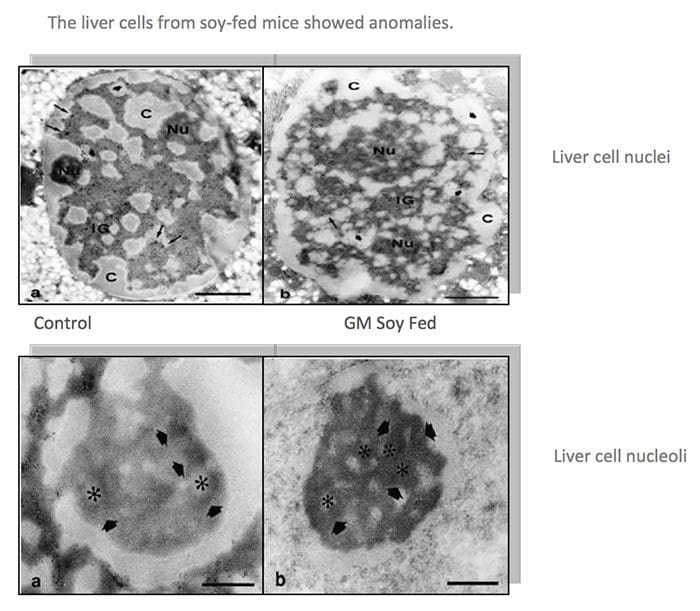
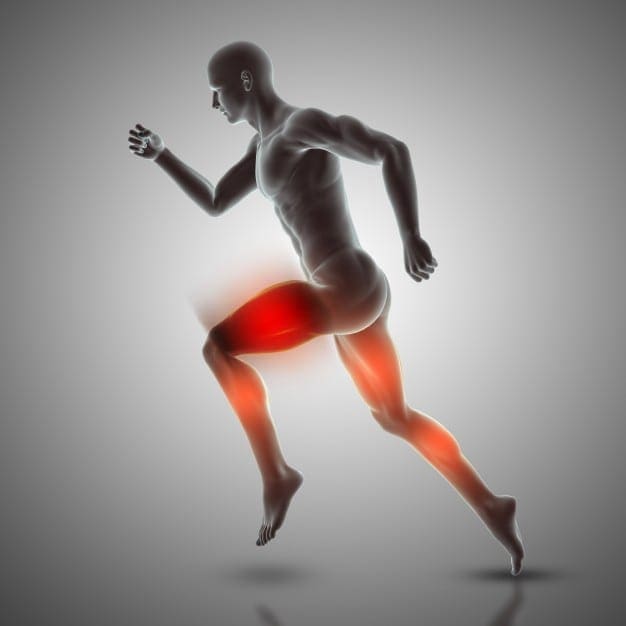
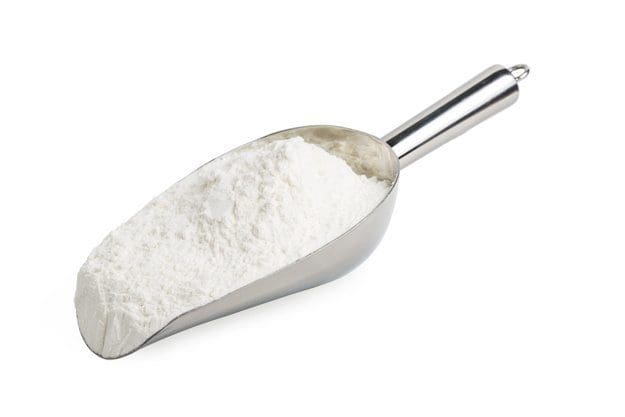 There are 3 known types of negative reactions to wheat proteins, collectively known as wheat protein reactivity: wheat allergy (WA), gluten sensitivity (GS),�and celiac disease (CD). Of the 3, only CD is known to involve autoimmune reactivity, generation of antibodies, and intestinal mucosal damage. Wheat allergy involves the release of histamine by way of immunoglobulin (Ig) E cross-linking with gluten peptides and presents within hours after ingestion of wheat proteins. Gluten sensitivity is considered to be a diagnosis of exclusion; sufferers improve symptomatically with a gluten-free diet (GFD) but do not express antibodies or IgE reactivity.1
There are 3 known types of negative reactions to wheat proteins, collectively known as wheat protein reactivity: wheat allergy (WA), gluten sensitivity (GS),�and celiac disease (CD). Of the 3, only CD is known to involve autoimmune reactivity, generation of antibodies, and intestinal mucosal damage. Wheat allergy involves the release of histamine by way of immunoglobulin (Ig) E cross-linking with gluten peptides and presents within hours after ingestion of wheat proteins. Gluten sensitivity is considered to be a diagnosis of exclusion; sufferers improve symptomatically with a gluten-free diet (GFD) but do not express antibodies or IgE reactivity.1 A 28-year-old man presented to a chiropractic teaching clinic with complaints of constant muscle fasciculations of 2 years� duration. The muscle fasciculations originally started in the left eye and remained there for about 6 months. The patient then noticed that the fasciculations began to move to other areas of his body. They first moved into the right eye, followed by the lips,�and then to the calves, quadriceps, and gluteus muscles. The twitching would sometimes occur in a single muscle or may involve all of the above muscles simultaneously. Along with the twitches, he reports a constant �buzzing� or �crawling� feeling in his legs. There was no point during the day or night when the twitches ceased.
A 28-year-old man presented to a chiropractic teaching clinic with complaints of constant muscle fasciculations of 2 years� duration. The muscle fasciculations originally started in the left eye and remained there for about 6 months. The patient then noticed that the fasciculations began to move to other areas of his body. They first moved into the right eye, followed by the lips,�and then to the calves, quadriceps, and gluteus muscles. The twitching would sometimes occur in a single muscle or may involve all of the above muscles simultaneously. Along with the twitches, he reports a constant �buzzing� or �crawling� feeling in his legs. There was no point during the day or night when the twitches ceased. Discussion
Discussion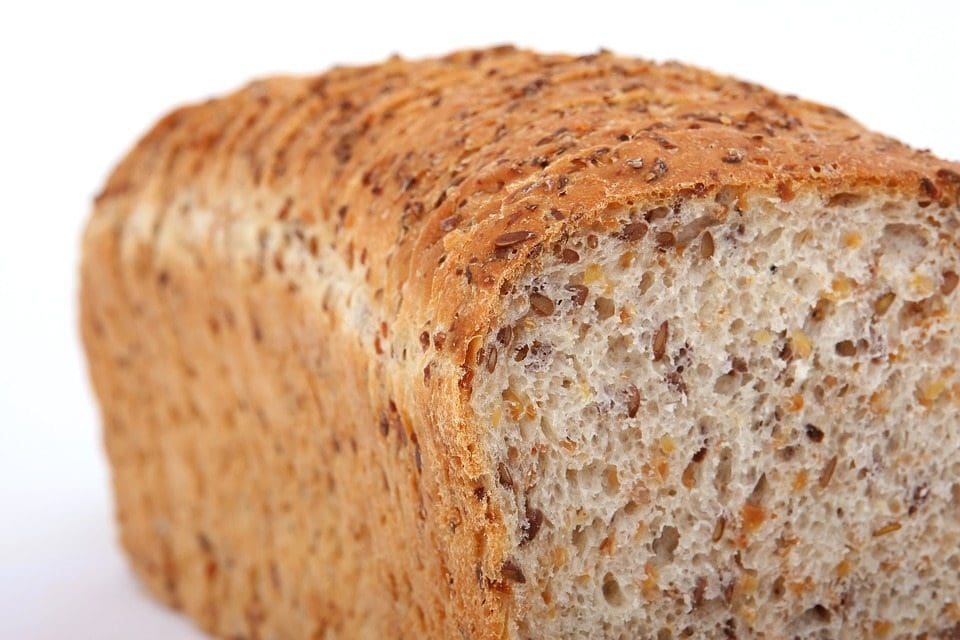 The authors could not find any published case studies related to a presentation such as the one�described here. We believe this is a unique presentation of wheat protein reactivity and thereby represents a contribution to the body of knowledge in this field.
The authors could not find any published case studies related to a presentation such as the one�described here. We believe this is a unique presentation of wheat protein reactivity and thereby represents a contribution to the body of knowledge in this field. This report describes improvement in chronic, widespread muscle fasciculations and various other systemic symptoms with dietary change. There is strong suspicion that this case represents one of
This report describes improvement in chronic, widespread muscle fasciculations and various other systemic symptoms with dietary change. There is strong suspicion that this case represents one of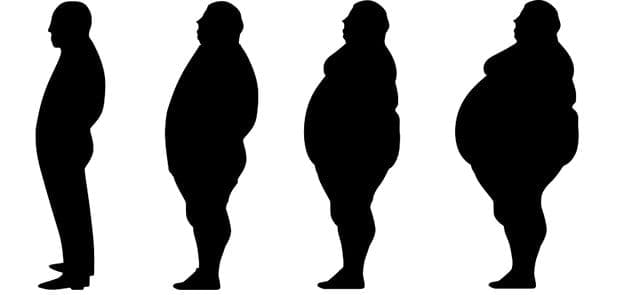
 The prevalence of obesity in the United States has been increasing for almost 50 years. Currently, more than two-thirds of adults and almost one-third of children and adolescents are
The prevalence of obesity in the United States has been increasing for almost 50 years. Currently, more than two-thirds of adults and almost one-third of children and adolescents are 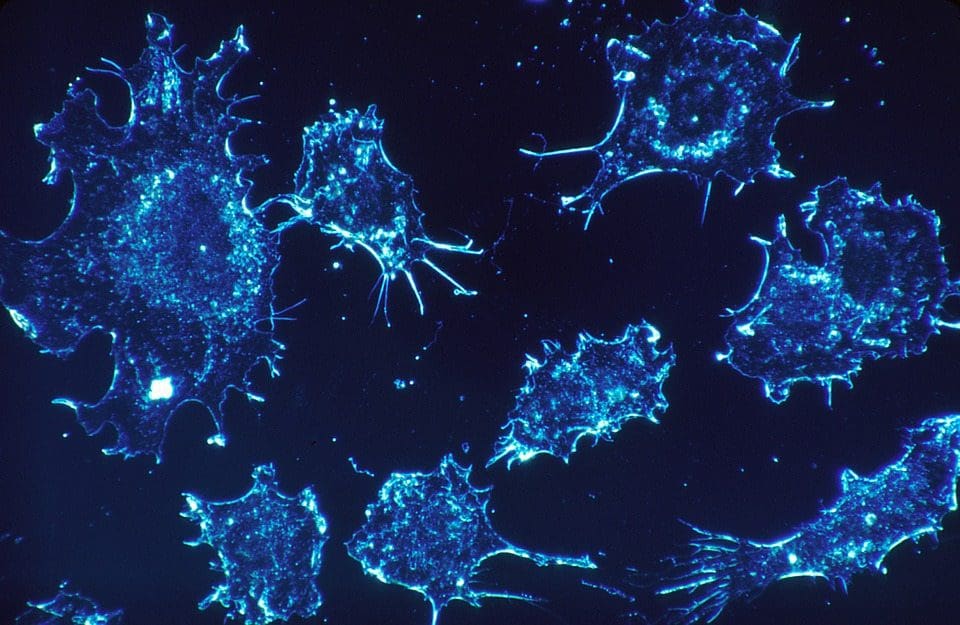
 From 2005 to 2014, there was a 1.4% annual increase in cancers related to overweight and obesity among individuals aged 20 to 49 years and a 0.4% increase in these cancers among individuals aged 50 to 64 years. For example, if cancer rates had stayed the same in 2014 as they were in 2005, there would have been 43?000 fewer cases of colorectal cancer but 33?000 more cases of other cancers related to overweight and obesity. Nearly half of all cancers in people younger than 65 years were associated with overweight and obesity. Overweight and obesity among younger people may exact a toll on individuals� health earlier in their lifetimes.
From 2005 to 2014, there was a 1.4% annual increase in cancers related to overweight and obesity among individuals aged 20 to 49 years and a 0.4% increase in these cancers among individuals aged 50 to 64 years. For example, if cancer rates had stayed the same in 2014 as they were in 2005, there would have been 43?000 fewer cases of colorectal cancer but 33?000 more cases of other cancers related to overweight and obesity. Nearly half of all cancers in people younger than 65 years were associated with overweight and obesity. Overweight and obesity among younger people may exact a toll on individuals� health earlier in their lifetimes.
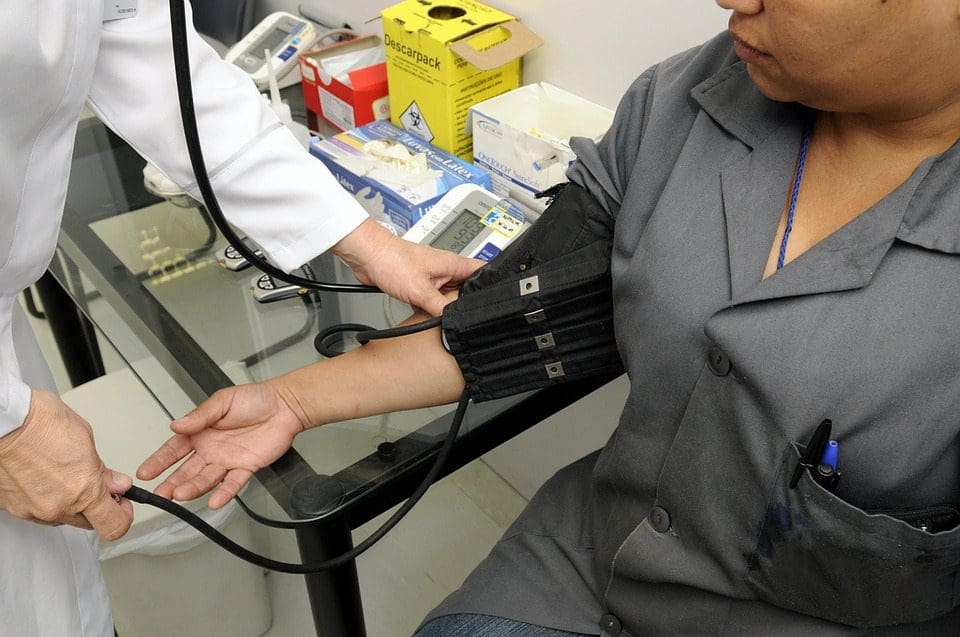 The
The  Implementation of clinical interventions, including screening, counseling, and referral, has major challenges. Since 2011, Medicare has covered behavioral counseling sessions for weight loss in primary care settings. However, the benefit has not been widely utilized.
Implementation of clinical interventions, including screening, counseling, and referral, has major challenges. Since 2011, Medicare has covered behavioral counseling sessions for weight loss in primary care settings. However, the benefit has not been widely utilized. Achieving sustainable weight loss requires comprehensive strategies that support patients� efforts to make significant lifestyle changes. The availability of clinical and community programs and services to which to refer patients is critically important. Although such programs are available in some communities, there are gaps in availability. Furthermore, even when these programs are available, enhancing linkages between clinical and community care could improve patients� access. Linking community obesity prevention, weight management, and physical activity programs with clinical services can connect people to valuable prevention and intervention resources in the communities where they live, work, and play. Such linkages can give individuals the encouragement they need for the lifestyle changes that maintain or improve their health.
Achieving sustainable weight loss requires comprehensive strategies that support patients� efforts to make significant lifestyle changes. The availability of clinical and community programs and services to which to refer patients is critically important. Although such programs are available in some communities, there are gaps in availability. Furthermore, even when these programs are available, enhancing linkages between clinical and community care could improve patients� access. Linking community obesity prevention, weight management, and physical activity programs with clinical services can connect people to valuable prevention and intervention resources in the communities where they live, work, and play. Such linkages can give individuals the encouragement they need for the lifestyle changes that maintain or improve their health. The high prevalence of overweight and obesity in the United States will continue to contribute to increases in health consequences related to obesity, including cancer. Nonetheless, cancer is not inevitable; it is possible that many cancers related to overweight and obesity could be prevented, and physicians have an important responsibility in educating patients and supporting patients� efforts to lead healthy lifestyles. It is important for all health care professionals to emphasize that along with quitting or avoiding tobacco, achieving and maintaining a healthy weight are also important for reducing the risk of cancer.
The high prevalence of overweight and obesity in the United States will continue to contribute to increases in health consequences related to obesity, including cancer. Nonetheless, cancer is not inevitable; it is possible that many cancers related to overweight and obesity could be prevented, and physicians have an important responsibility in educating patients and supporting patients� efforts to lead healthy lifestyles. It is important for all health care professionals to emphasize that along with quitting or avoiding tobacco, achieving and maintaining a healthy weight are also important for reducing the risk of cancer.